#like several hundred people traveling cross-country
Explore tagged Tumblr posts
Text
Sponsored by Archewell of Course

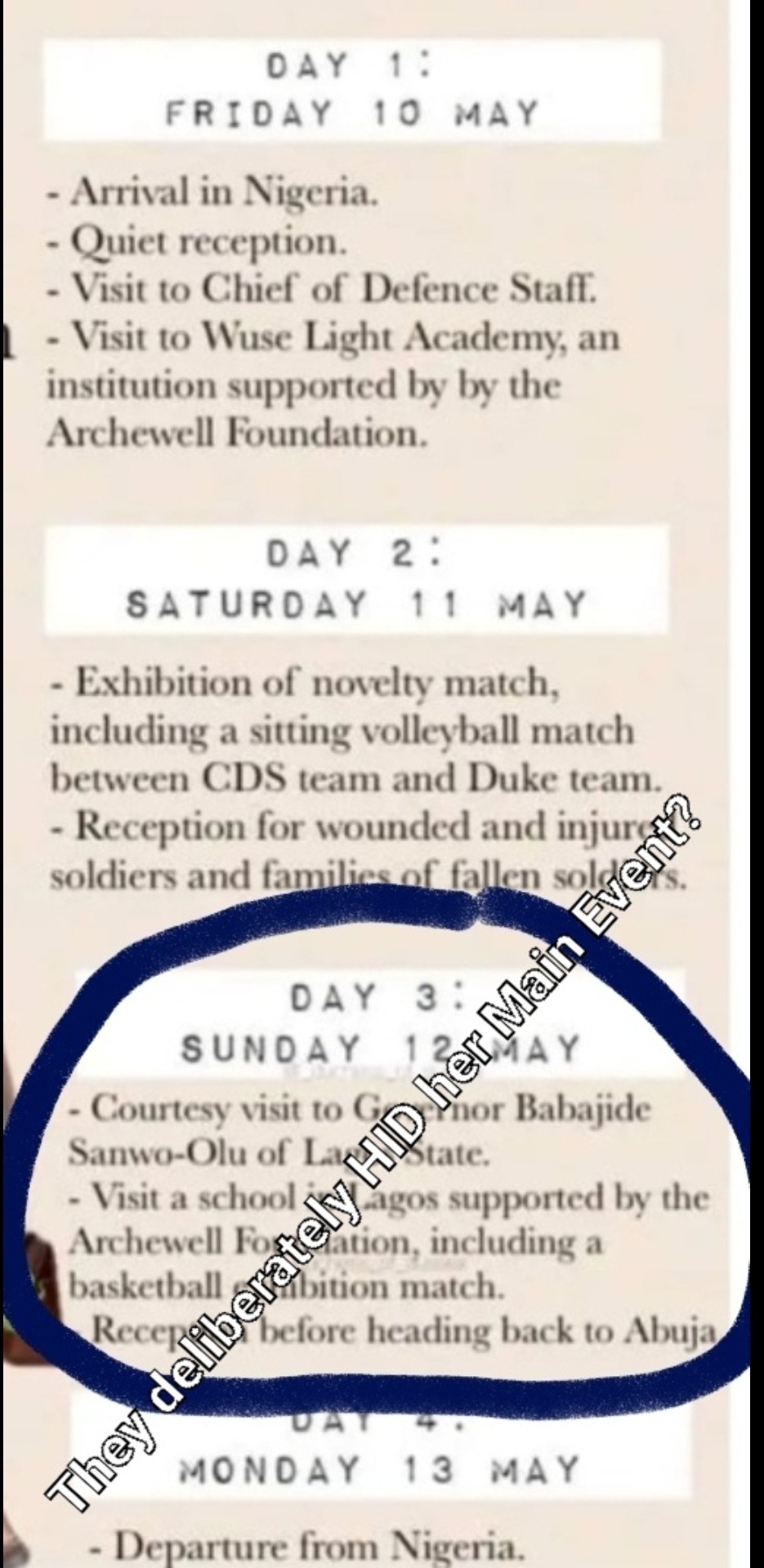
Finally we learn the true purpose of this fake royal inGRIFTus visit: MEgain's dream to purcha$e (not earn) a political appointment as an Ambassador for the perks: IPP status, a NYC apartment, luxurious international travel, power, stardom, etc.
In 2021 in the name of vaccine equity (and netflix), The Meghans secured a meeting with several WHO representatives involved w/The Clinton Global Initiative including the UN Under-Secretary General Winnie Byanyima.¹
MEgain replied "It's wonderful to be back..." just to make it clear that THIS trip is all about HER not him.

It seems that identifying as Misan Harriman's Nigerian cousin might be her golden ticket to the UN.
Meghan Markle was the most unaccomplished woman in that room of so-called Nigerian women leaders and certainly the least deserving of any political appointments or elected positions. She's treated women and men like TRASH. Hissing and harassing them to such lengths that they require therapy and seek new employment.
Sparry is absolutely complicit in their drive to give his wife undeserved power and authority over institutions and human beings. He'll assist her with love bombing Ngozi even just save what little hair remains on his head. He's a Eunuch.
From the Nigerian Defense Staff Visitor Book of General Christopher Musa
Sparry: "Thank you for welcoming us to your beautiful country. Together we will heal our troops. -Harry
MEgain: "With gratitude for the support of the Invictus community. And for welcoming me home." -M??
Did these female leaders discuss the women who have been raped and violated in the African Parks Scandal?
What about hundreds of abducted Nigerian children, most recently in broad daylight on March 7, 2024?
Look at this lovely room and compare it to the spaces The Meghans publicized to the mainstream media on their tour. Spot the difference. Who do you think matters most, the wounded or the powerful?
The good news is that The MEghans have a very long history of lying, cheating, mistreating innocent people, and even mocking God.
No matter what doors 43% of bull chite will open, God will not be mocked. Sparry had the temerity to walk into Saint Paul's and read from the holy scriptures as if he's some authority on serving God while he nails his bloodline to the media's cross.
Cry out for mercy, Harry!
God will not be mocked, whatever a man sows that will he also reap.
MEgain thinks she can rebrand her ancestry and whore her way into achieving all her personal & professional goals.
Whatever she has sown, she will reap.
"An afternoon of joy, love and sharing of experiences with leading Nigerian women from across the spectrum- Public Sector, Private Sector, Civil Society, a mixture of young and old. Co hosted by Meghan the Duchess of Sussex and myself, and moderated by @MoAbudu
Talking about what it means to be a woman leader, how difficult it is to get there, and the sisterhood and brotherhood that is needed to help make leadership work. Also had a fantastic panel made up of Dr @OmobolaJohnsonHon Minister @DrDorisAnite @achenyoio@miss_asagba Dr. Mairo Mandara and CNN’s @StephanieBusari who all shared their special experiences.
Sponsored by "Archewell Women in Leadership"



Soho House's Misan Harriman but not Sparry🤔
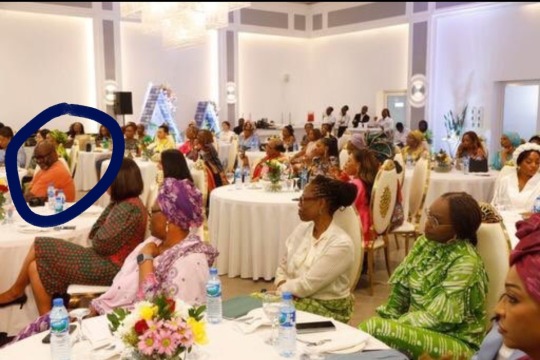
She never cared about those less fortunate people The #Kigali of Today is the African Parks Rapes
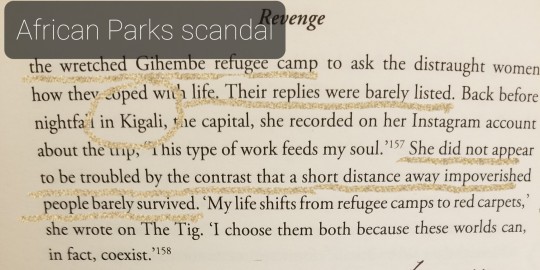
She adored Elizabeth until she refused to place her in the Ambassador position with Emma Watson. When she had the opportunity for REVENGE she took it out on all the women waiting to meet her at the Fiji Market which included the UN Women and the Royal Tour Staff.


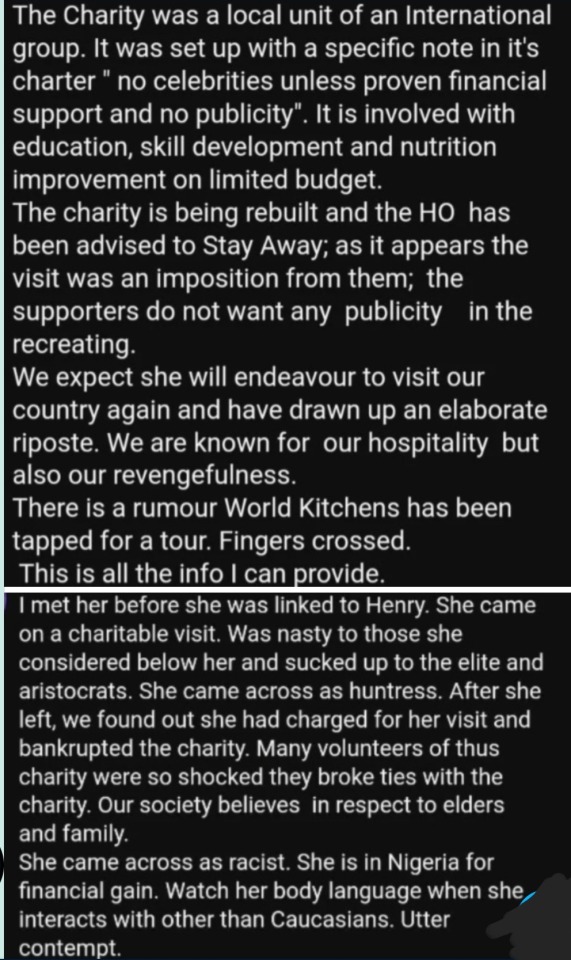
The Malta Ancestry Lie: "oh I do sort of blend in, and it's the loveliest feeling." Unfortunately for the Maltese tourist authority, Meghan's published article made NO MENTION MALTA!!!
"Meghan identifies 1st and foremost as the business woman. Money is Meghan's priority." P77
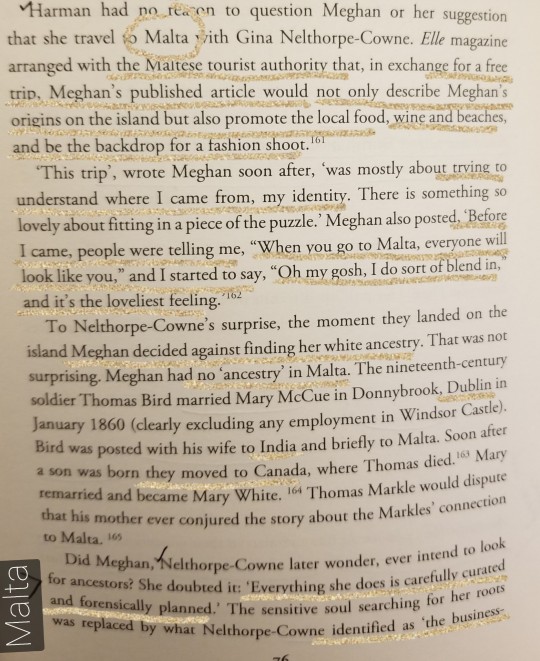
Numerous Bridges Burned. She has markled herself.
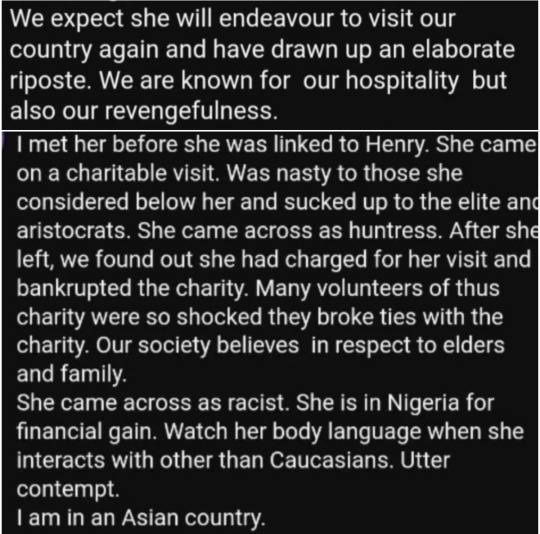
WTO | 2021 News items - History is made: Ngozi Okonjo-Iweala chosen as Director-General
She'sa globalist WEFer: "The General Council decision follows months of uncertainty which arose when the United States initially refused to join the consensus around Dr Okonjo-Iweala and threw its support behind Trade Minister Yoo Myung-hee of the Republic of Korea. But following Ms Yoo's decision on 5 February to withdraw her candidacy, the administration of newly elected US President Joseph R. Biden Jr. dropped the US objection and announced instead that Washington extends its “strong support” to the candidacy of Dr Okonjo-Iweala."
History is made: Ngozi Okonjo-Iweala chosen as Director-General
WTO members made history today (15 February) when the General Council agreed by consensus to select Ngozi Okonjo-Iweala of Nigeria as the organization’s seventh Director-General.
When she takes office on 1 March, Dr Okonjo-Iweala will become the first woman and the first African to be chosen as Director-General. Her term, renewable, will expire on 31 August 2025.
“This is a very significant moment for the WTO. On behalf of the General Council, I extend our warmest congratulations to Dr Ngozi Okonjo-Iweala on her appointment as the WTO's next Director-General and formally welcome her to this General Council meeting,” said General Council Chair David Walker of New Zealand who, together with co-facilitators Amb. Dacio Castillo (Honduras) and Amb. Harald Aspelund (Iceland) led the nine-month DG selection process.
“Dr Ngozi, on behalf of all members I wish to sincerely thank you for your graciousness in these exceptional months, and for your patience. We look forward to collaborating closely with you, Dr Ngozi, and I am certain that all members will work with you constructively during your tenure as Director-General to shape the future of this organization,” he added.
Dr Okonjo-Iweala said a key priority for her would be to work with members to quickly address the economic and health consequences brought about by the COVID-19 pandemic.
“I am honoured to have been selected by WTO members as WTO Director-General,” said Dr Okonjo-Iweala. “A strong WTO is vital if we are to recover fully and rapidly from the devastation wrought by the COVID-19 pandemic. I look forward to working with members to shape and implement the policy responses we need to get the global economy going again. Our organization faces a great many challenges but working together we can collectively make the WTO stronger, more agile and better adapted to the realities of today.” Her full statement is available here.
The General Council decision follows months of uncertainty which arose when the United States initially refused to join the consensus around Dr Okonjo-Iweala and threw its support behind Trade Minister Yoo Myung-hee of the Republic of Korea. But following Ms Yoo's decision on 5 February to withdraw her candidacy, the administration of newly elected US President Joseph R. Biden Jr. dropped the US objection and announced instead that Washington extends its “strong support” to the candidacy of Dr Okonjo-Iweala.
Amb. Walker extended his thanks to all eight of the candidates who participated in the selection process and particularly to Ms Yoo “for her ongoing commitment to and support for the multilateral trading system and for the WTO”. His full statement is available here.
The General Council agreed on 31 July that there would be three stages of consultations held over a two-month period commencing 7 September. During these confidential consultations, the field of candidates was narrowed from eight to five and then two. On 28 October, General Council Chair David Walker of New Zealand had informed members that based on consultations with all delegations Dr Okonjo-Iweala was best poised to attain consensus of the 164 WTO members and that she had the deepest and the broadest support among the membership. At that meeting, the United States was the only WTO member which said it could not join the consensus.
The consultation process undertaken by the chair and facilitators was established through guidelines agreed by all WTO members in a 2002 General Council decision. These guidelines spelled out the key criteria in determining the candidate best positioned to gain consensus is the “breadth of support” each candidate receives from the members. During the DG selection processes of 2005 and 2013, breadth of support was defined as “the distribution of preferences across geographic regions and among the categories of members generally recognized in WTO provisions: that is (Least developed countries), developing countries and developed countries”. This same process, agreed by all members in the General Council in 2020, was strictly followed by Chair Walker and his colleagues throughout the 2020-21 DG selection process.
The process for selecting a new Director-General was triggered on 14 May when former Director-General Mr Roberto Azevêdo informed WTO members he would be stepping down from his post one year before the expiry of his mandate. He subsequently left office on 31 August.
¹Winnie Byanyima UN Under-Secretary Gen & ED of UNAIDS since 2019: "Byanyima was appointed as the executive director of UNAIDS in August 2019, by the United Nations Secretary-General, António Guterres, following a comprehensive selection process that involved a search committee constituted by members of the UNAIDS Programme Coordinating Board. In her new position she concurrently serves as a United Nations Under-Secretary-General. In addition to her role at UNAIDS, Byanyima also serves a two-year term as a member of the World Bank Group’s (WBG) Advisory Council on Gender and Development. Since 2022, she has been a member of the Commission for Universal Health convened by Chatham House and co-chaired by Helen Clark and Jakaya Kikwete."
#Misan Harriman#Soho House#The UN#Nigerian Scammers#megxit#spare us#meghan markle#worldwide privacy tour#Arche Scam#fake royal tour#meghan markle is a liar#meghan markle is a bully#meghan markle is a fraud#revenge#tom bower#malta#seeking her identity#finding freebies#ambassador dreams#new york city#political appointment#money is her identity#43% bs#frauds#Nigerian Frauds#ancestry#African Parks Scandal#Bring Back Our NIGERIAN GIRLS 2.0#markled nigeria 🇳🇬#inGRIFTus
61 notes
·
View notes
Note
Is Malleus not that famous in other countries cause in the Scalding Sands event Najma didn't seem to know who he was, there probably aren't many pictures of him around the internet but with how nervous Jamil was getting its weird it didn't cross her, you'd think he'd be pretty well known being the top 5 strongest mage and heir to the throne in Briar Valley


Well 😅 Najma’s just one person, right? I don’t think her specifically not knowing who Malleus is reflects on the average Twisted Wonderland civilian’s knowledge.
With that in mind, there’s actually many reasons why Najma in particular (and/or some other people) may not recognize Malleus:
People don’t always know political figures or figures of prominence in specific circles, especially if it isn’t of interest or of relevance to them. Think about it. Do you know the names and faces of political figures in countries outside of your own? What about specialists (athletes, artists, scientists) in fields you aren’t involved in? Thinking of it like that, it isn’t at all surprising that Najma, doesn’t recognize royalty from another country or highly ranked magicians (when she isn’t shown to be one herself).
Maybe Malleus just hasn’t been mentioned in Najma’s history class yet. For example, in Glorious Masquerade, we learn that Magic History class does not cover certain materials like the accomplishments of the Just Judge until year 2. Therefore, it’s possible that Najma has not yet learned about the Draconias in school. (Alternatively, it’s also possible that non-magic schools skim over notable mages; this would explain why NRC students specifically take Magic History, which I assume focuses on magic and mages, rather than just “History”.)
With how fae aging works, maybe the history books are just not up to date. There is a noted few hundred years of unexplained time between Malleus’s egg existing and it finally hatching when, in reality, it should have only taken a few years for his egg to hatch. It’s also said in book 7 part 4 that none of the history books speak of what happened to Briar Valley’s monarchs (ie Malleus’s parents), and that “the books at home and at the school library don’t mention anything about the Briar Valley’s history”.
It’s difficult to communicate with the Briar Valley. This is very possible, especially seeing as how the country is said to be lacking in way of technological advancements. (STYX is able to contact them, but they’re a secret organization 😂) This would likely mean that historians would have to physically travel far north to personally document Briar Valley themselves—which may be an arduous task, seeing as mirror travel and warp pads are not widely accessible to the general public. Since the Briar Valley is reclusive and even implied to not be accepting of non-fae, it may be even more challenging to get clearance to visit the country. A lot of their history seems to spread mainly by direct word of mouth (as Silver and Sebek imply in book 7; their father and grandfather, respectively, did not either of them about the Draconia family history or about the several years’ period of war Briar Valley went through).
In the actual Scalding Sands event, the visiting NRC students mention that the locals aren’t panicking about Malleus because the head wrap he’s wearing disguises him. Najma also later mistakes his horns as being decorations or fakes. This can easily be explained by the simple fact that… well, celebrities would wear different clothes in public to “blend in” and people wouldn’t recognize them because no one thinks “hey, I’ll run into a super famous person roaming my local market”. If you don’t pay enough attention to something, you may just overlook it. Attention is selective.
Aaaand of course, we have the good old boring explanation of “it’s for plot convenience, don’t question it” 😂
Personally, I think the “the history books just don’t talk about it” explanation is the most accurate, as there’s actual strong narrative implications of it in the main story; however, it’s possible that the real reason is a combination of all of these.
#twst#twisted wonderland#Malleus Draconia#Najma Viper#disney twisted wonderland#notes from the writing raven#question#twst theory#twst theories#twisted wonderland theories#twisted wonderland theory
213 notes
·
View notes
Text
Anyway, uh, it's been busy so here is a brief (lies, it's not brief, but I promise I'm only giving the highlights) summary of the last month.
Break for very long post
The Last Month - Abridged
F & I are splitting up (sorta). The hardest one to write, but it's going up top 1. because it came first and 2. because if I don't start with it I simply won't write it out. It's been slowly moving towards this for awhile now, but it's real now. Mostly, it's a case of conflicting needs and conflicting disabilities, so it's been rough on both sides. We're still living together, and planning to continue that way (even if we weren't though, who could afford the rent?) so it's still family of a sort, but not like it was
I uncovered a major issue at work (~2 days after F had me start sleeping on the futon) and it was a mess but we got it resolved within two days
Less than an hour after finding the issue mentioned above, I got the call that the relative I was planning on visiting in a week died
I figured risking air travel was probably a bad idea. It'd probably end fine, but I've not yet been trapped somewhere with one of the worse perfumes and a metal box hundreds of feet in the air with no ability to leave for several hours seems like a poor place to risk seeing exactly how far these reactions can go. (I don't want a joint funeral, I'm not catholic). So I chose to drive through the night instead - which is also a bad idea, but what can you do? Packing with no idea about how things are going to go was it's own mess.
The drive went surprisingly well. I took as few stops as possible and I have a new odor reducing respirator that is helping a lot - so it was only a handful of reactions & I was ready to stomp them out each time (yay albuterol & xyzal). Pretty much drove straight through except for gas and a 30min catnap here and there (don't try this at home kids, I'm setting a bad example). My good friend driving-though-the-dark-alone-listening-to-a-horror-podcast kept me awake just fine (I love you Left Right Game) (but again, don't try this at home)
Did the funeral things, got super sick in the church but was alright at the other venues. I must have looked really bad in the church though because my family didn't make a single snide remark about me bringing my dog on the trip during the entire time I was there.
Helped out with moving things around the house and dispersing some possessions. I drove a bunch of clothes (fragrant 🤦 but I had them in trash bags so it was mostly okay) back with me to donate to the various queer orgs around here. They'll appreciate the old natural fiber clothes more than the goodwill where most of it was going.
Made a detour specifically to bring my dog to the Atlantic. She had a blast. Nova has now officially crossed the country (W->E and also S->N).
On the drive back I went hiking the farthest I've been from a city in a long time and I felt so fucking alive. On the one hand, stunning experience - did 7mi (11km) in snow no problem as a short hike (since I was trying to make it back to bring F to a medical appointment) and I would have stayed out all day if I could. On the other hand, it's a little concerning if the only place I feel like myself is that far away from people. I can't afford a house & land in the middle of nowhere…
Also stopped by a place we used to live and walked our old neighborhood route. Nova was excited, but confused.
Wound up in a different park after hours and it might have been haunted
Made it back the day before F's appointment. Slept. Discovered that the one provider I liked less than the others (despite them all being equally friendly) uses perfume so I've just been allergic to them instead of disliking them for no reason (I kinda suspected so, but it was proven this time)
Had a rheumatology appointment to see if they had ideas about what my issue might be. This is the first time I have seen a doctor realize what it means when I say I'm having these reactions to fragrances, you could see it play out on her face: oh shit, fragrances are everywhere. Several times throughout the appointment she'd pause as she had a thought and then ask questions that were clearly checking in on my life outside of just the symptoms (e.g. "how do you get groceries?") which is something I haven't seen since F's GP (whose interest was in public health) moved away. I think it went well. She's running the usual bloodwork, partly just to check and partly because she knows that having ruled out some things already will make it more likely for me to get care from an allergist.
Toured more houses for rent, it just made me incredibly sad. You can see traces of someone's beloved home in some of these old houses, but landlords own them now and they just don't bother. Rotting garages, fences in pieces, trash in the yard, holes in the walls, doors that can't open all the way anymore. 'Just let the tenant do the work and foot the bill, people are desperate, we can let the house rot around them while they pay for the privilege and just buy another when it pops up.' (I have feelings on the matter)
Finally got my covid & flu shots. I had timed it specifically for when our favorite pharmacist works, but I hadn't considered the holiday rush would mean they have two on duty. I instead got our least favorite pharmacist (she does not like F) and it was an impressively bad experience. Sure love it when you tell a provider something has given you side effects every time and they tell you it won't do it 🙄 /s
Rheumatology bloodwork is back, I love receiving results online. I'm very interested in what she'll say at the follow up this week. By my read (science nerd, but no relevant medical training), it's… odd. A little contradictory, but it's indicating some shit is up - however, none of the main contenders would explain my fragrance reactions.
Got to volunteer with a conservation group in a safe area for me. Had a fantastic time, was able to be around people and move and do something productive and satisfying. Went back again and will continue trying to do these as I can.
Went with F to her allergy appointment and, ironically, had reactions myself the entire time. Not just in the waiting room, but everywhere in the building. Maybe it was their disinfectant? Hoping it was just a fluke because I used to be able to go there, even while dealing with this.
My allergy appointment went poorly, there's another (long) post about it, but the gist is that I now have VCD in my chart (despite the fact he said he doesn't know what is wrong with me and said maybe I should go to Mayo Clinic) & tests he didn't mention
I am currently arguing with insurance over >$10k and I'm not having fun
7 notes
·
View notes
Text

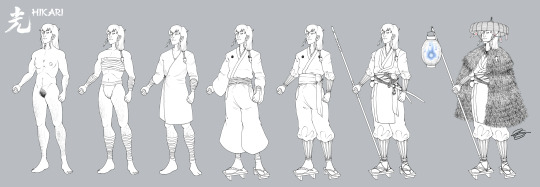
Woe! Transgender samurai be upon ye!
-pulling my old OC out of the filing cabinet and giving him a shampoo- LOOK I HAVE A NEW CHILD!! :D
I've decided to rework an old story/universe from several years ago, so here we go again, from the top:
---------------------------------------------------------------------------
暁の物語 Akatsuki no Monogatari
光 Hikari
Hikari, aka Shitaikou, is a young ronin, a master-less samurai, wandering around Edo-era Japan on a soul-searching journey.
He was raised as a girl named Sayoko (小夜子) by a samurai family, and taught swordsmanship and the arts like his brothers, although he was never destined to become a warrior. When the time came to find him a husband, he stole two swords, ran away and changed his name.
He now walks the roads of Japan on a quest to find [insert as-of-yet undefined quest here], and offers his assistance to villagers on the way. In doing so, he often runs into yokais and other paranormal occurences, to the point where in time he becomes an expert on the occult underworld of Japan and is often nicknamed the Demon Samurai.
Hikari is accompanied in his travels by Chihiro (千尋), a kitsune, and by Mochi (餅), a totally normal cat with the usual amount of tails and absolutely no supernatural powers, no siree. He is also regularly involved with an onnagata (a cross-dressing kabuki actor) and a yokai-hunting Buddhist monk, both of which I have yet to name (Mochi's name is also susceptible of being changed soon), and meets all kinds of strange people on his travels.
Hikari has a kind heart and a strong sense of honour. His driving force is his desire to help others; although he is very naive at first, and misguided altruism often gets him in trouble. As the story progresses, he will grow more mature and cynical, often preferring the company of yokais to that of humans, but trying to retain hope and faith in his fellow men.
(You can see older drawings of Hikari, including different outfits, here)
---------------------------------------------------------------------------
Akatsuki no Monogatari (the Tale of Dawn) takes place in the very beginning of the Edo era, in the transition years between the warring period of the Sengoku-Jidai and the two hundred years of peace under the Tokugawa shogunate. It is a story about change and beginnings, both of a person and of a country.
Some name lore under the cut!
The kanji Hikari 光 means "light". Hikari is a "public first name", sort of an official nickname. It was common practice in feudal Japan (at least among the samurai class) to go by a public name and keep your real name private. In Hikari's case, that is also because he often frequents yokais and magicians, who could use his true name against him.
His real name is Shitaikou 志泰光 . The kanjis composing it mean "aspire", "gentle" and "light". He chose it as a reminder to himself to strive for kindness and to make the world a better place.
("Hikari" is the last kanji composing this name. When used with other kanjis, it is pronouced "kou". Such is the messed-up way kanjis work. -frustrated weeb noises-)
Hikari doesn't have a last name; he gave up his family's name when he ran away and saw no use in taking a new one: as a ronin he is not tied to any family.
His birth name, Sayoko 小夜子 , is composed of the kanjis "small", "night" and "daughter". Hence the title, Akatsuki no Monogatari, the tale of dawn, or how the night turns into the light.
#formerly this universe was called hakatsuki no monogatari because i had somehow convinced myself that akatsuki starts with an h (??????????)#the as-of-yet undefined quest may be a quest for a gender-transing yokai or deity#i need to do more research into shinto and buddhist deities i'm sure there must be one that fit the bill#or i can just use inari. their gender is unclear and their messenger animal is a fox which is well-known for shapeshifting#anyway i need to draw the rest of the cast and find a name for the onnagata#spoiler she's hikari's gf and they're T4T <3#my ocs#hikari#akatsuki no monogatari#samurai#ronin#japan#edo#transgender#blorbo from my brain
25 notes
·
View notes
Text
All Our Yesterdays - Chapter 3
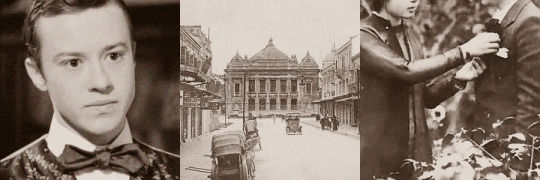
Pairing: Ralph (Timewasters) x OFC
Summary: Thu, a museum archivist, only wants to escape her dull life in 21st-century Hanoi. The last thing she expects is to end up in 1929 Indochina via a time-traveling elevator and cross paths with Ralph, an Englishman on the run from the French Foreign Legion. Romance blossoms between them, but in a colonized country, unrest is always looming on the horizon, and Thu must decide if she wants to stay with Ralph in the past or return to the safety of the future.
Warnings: outdated/period-typical attitudes about women, mentions of war, mentions of pregnancy and abortion (involving a supporting character), some angst, some smut (non-explicit)
Chapter word count: 4.7k
Chapter 1 - Chapter 2
Chapter 3
For a fleeting moment, while her brain was still heavy with sleep, Thu thought she was at her grandparents' house in the Hue countryside for the summer holiday. Everything was still. The sound of traffic that woke her up every morning was absent, and somewhere in the distance, impossibly, a rooster was crowing. Then she felt a strange pillow under her cheek, felt a crick in her back from sleeping curled up on the couch, remembered what had happened the night before, and bolted up.
It was no dream then. She was still in the room with the old-fashioned tiled floor and the rattan furniture. A clock on the cupboard told her it was just after six, her usual time of getting up. Good to know that even almost a hundred years into the past, her circadian rhythm was still the same.
The bright early morning light streaming through the window helped to clear her head. She had been such an idiot the previous night. It was the shock that got to her. But now that she'd gotten some rest, she knew what she had to do, and it was so absurdly simple that she wondered why she didn't think of it sooner.
The bedroom door was still closed, and she didn't want to wake Ralph. She found a piece of paper from her backpack, scribbled "I'm going back to the future. (She couldn't stop herself from dropping a little reference, even though he wouldn't understand it.) Thank you for all your help, Thu" on it, and left it under the coffee cup on the table. Then, lifting up her backpack, she set out for Tràng Tiền Street—Rue Paul Bert, she remembered to correct herself.
It was early, and though the streets were busier than they were at night, it was nothing compared to the seething hive of modern Hanoi. Office workers probably wouldn't start their day for another hour, and most people she met were day laborers and street vendors, just like it was in her time. Funny how some things never changed. A woman walked past, dressing in the rural style of a brown tunic and black skirt, her hair hidden under a black scarf, carrying a steaming basket on her head. "Hot sticky rice!" she called. "Come get your hot sticky rice!" The warm scent of the steamed rice topped with crispy onion wafted toward Thu, making her mouth water and her stomach growl. She remembered she hadn't had anything to eat except for a mouthful of dry bread since the previous night. But her money was no good here. So she swallowed and walked on.
The way from Ralph's lodgings to the IDEO Printing House was less than one kilometer, but without the familiar landmarks, Thu had some difficulty in finding her way. Eventually, though, she recognized the façades of several buildings and found herself in front of the Printing House once more. Already workers were filing in through the front door, and the hunks of machinery she glimpsed the previous night - printing presses, she now knew - were shuddering into life. Thu mingled in with the stream of workers, hoping she could pass unnoticed.
No such luck. A man in Western clothes, looking like a foreman, stepped in front of her. "Can I help you, uh, miss?" he said in Vietnamese, sizing her up.
"Uh, yes, I'm here to see the director," Thu said in what she hoped was a confident voice. "My boss wishes to have some visiting cards printed."
"The director's not in," the man said. "You can talk to me about any order you wish to place."
"But my boss insisted on speaking to the director himself."
"Who's your boss?"
"Uh, Monsieur Davinier, a photographer on Tràng Thi—I mean, Rue Borgnis Desbordes," Thu said, using the first name that came into her mind. "Really, I won't be a minute." She pushed past the foreman and rushed into the elevator. It had now changed from the slick design of the 21st century into an old-fashioned style, the kind with two sets of doors that you had to close by hand before the elevator could move.
The foreman was shouting for the workers to stop her, but she ignored them and pulled the two doors shut.
That was when she realized she had no idea what number to press on the keypad.
Would "2023" work? But there was no "0" button.
Wait, there was a "∞" button she hadn't noticed before. Could she use that?
"Here goes nothing," she said under her breath and pressed 2 - ∞ - 2 - 3.
Nothing. Perhaps just 2 - 3 then?
No.
2 - 3 - ∞? Still no.
She pressed 2 - ∞ - 2 - 3 again, really pressed them this time, as if doing so would make it work.
Still nothing. The elevator didn't move. It didn't even beep.
"No, no, no," she muttered, running her hand over the keypad, searching for—what? She didn't know. Some evidence, some sign to show her which buttons to press. But there was nothing.
As she stared at the keypad in dismay, the doors were yanked open. The foreman pulled her out. "This is a workplace," he said, dragging her across the factory floor, "not a fairground for you to play around in! Get lost!"
"But—wait—" But this is my way home, she tried to say. The only way!
"Get lost or I'll call the gendarmes!" the foreman said, shoving her through the door.
Thu stared at the ink-coated door of the Printing House. It wasn't until now that she realized she hadn't truly believed this was happening. She had been able to stay so calm throughout the previous night because she had thought this was all just a nightmare, and she could end it simply by stepping back into the elevator. All her hope had rested on it. She should have realized that it wouldn't be that easy. She might be stuck here for the rest of her life.
A sudden feeling of complete, utter loss washed over her. She had never had a panic attack, but she was pretty sure she could feel one coming on now. Her heart started racing, her body alternated between freezing and burning up, and she trembled all over, unable to move.
The ruckus from her trespass into the Printing House had already caught the attention of some curious onlookers, and now her crying was attracting a crowd. Suspicious murmurs rose around her, speculating about her outlandish appearance, her strange behavior. Over her own hyperventilating breaths, Thu caught a few words, "crazy" and "madhouse" and "police". She wanted to defend herself or to run away, but her legs wouldn't move, and she could only stand there, gasping like an idiot, while the rubberneckers surrounded her like a gloomy cloud.
A figure in white parted the cloud and came running to her side.
"What's happened?" the figure asked in English. It was Ralph.
That familiar smell was back, and it came to her in a flash—Palmolive soap, the same kind she used at home.
At the memory, strangely enough, Thu's panic subsided. "It's... it's not working," she said, trying to get her breath back. "The elevator, the lift, the time machine, whatever. I thought I could get it to work, but I can't." By now, the crowd around them had swollen to a mob. Ralph looked around warily.
"Come on, let's get out of here," he said, giving her arm a clumsy little pat and steering her away.
***
They went back to Ralph's rooms on Rue Borgnis Desbordes. Over breakfast - more coffee, bread (fresh this time, but still no butter), and eggs, boiled by Ralph over a spirit lamp - Thu told him what had happened with the elevator.
"I think Homeless Pete is the only one that can operate it," he said, once she'd finished.
"Do you know how to find him? Can you call home or—I don't know, send a cable or something, to see if the jazz quartet was still there and if they have any information for me?" Of course, if the other time travelers were still stuck in London to receive Ralph's message, it would mean they hadn't found a way home and she would be stuck as well.
A furtive look came into Ralph's eyes. "I—I can't. I—uh—I don't have their address. Sorry."
Thu remembered how she'd wondered about him the previous night, and now she studied him more closely. "What are you doing in Indochina anyway?" she asked.
"I—uh, I wanted to see the world."
"Last night you called Hanoi a mosquito-infested hellhole!"
"It has its charms, all right?"
She narrowed her eyes at him. She had always been careful not to judge a book by its cover, but even so, she had to admit that it was difficult to be suspicious of Ralph. He looked about as threatening as a puppy, with an open, trusting face, round eyes that the morning light showed to be a warm brown rather than dark brown as she'd thought, and light brown hair pomaded close to his head in the fashion of the time, though a rebellious curl over his forehead refused to be tamed. If the curl rose up any higher, he would be a dead ringer for an older Alfalfa from The Little Rascals.
There was definitely something he wasn't telling her, but Thu decided to let it go. It was none of her business. Getting home was what she should focus on, and to do that, she must find Homeless Pete. Well, a Western homeless man in French colonial Hanoi shouldn't be hard to find, should he? That was to say, if he wanted to be found in the first place...
"Look, Homeless Pete is like a bad penny," Ralph said. "He always turns up."
Thu stared blankly at him. That particular idiom had never made sense to her.
"In the meantime," he continued, "why don't you try to—I don't know, have fun a little?"
"You don't understand," she said. "I can't just drop everything to have a romp through history, all right? I have a life back in 2023! I have responsibilities!" Had she gone missing in her time? Were her parents freaking out right now?
"Well, you're already here," Ralph said with a shrug. "What else can you do?"
His calmness made her stop for a minute. Perhaps there was some truth in what he said. Panicking would help no one right now. She was in 1920s Hanoi. She was having a romp through history, whether she wanted to or not. True, she was woefully unprepared, but she knew her history well enough to understand that there were worse, much worse times in Vietnam's sad and tumultuous past to arrive in. She could have ended up in the Famine of 1945. She could have ended up in the Christmas bombing of 1972. She could have ended up in the Tây Sơn Uprising of the 18th century. Here she was, in a relatively peaceful time, colonization notwithstanding, with relatively modern amenities and relatively modern sensibilities. The country had its first wave of feminism, its first taste of romanticism in art and literature, and modernization, all around this time. So why not make the most of it and have fun, as Homeless Pete had instructed?
"OK, so it looks like I'm stuck here for the time being," she said slowly. "I suppose I could try to explore a bit and enjoy myself."
Ralph smiled, relieved. "That's good," he said. "That's what Lauren and her friends did too."
"The jazz quartet?"
"Yes." Ralph turned slightly pink. "Lauren, Jason, Horace, and Nick. They had a blast. Well, except for Nick. Last I heard, he got taken in by a eugenic cult."
Thu raised an eyebrow at that. Hopefully, 1920s Hanoi would be less insane.
***
Once breakfast was finished, Thu made an inventory of the contents of her backpack and compiled a list of all the things she would need for her stay. So far, the only useful things in her backpack were her medicine - how lucky that she had just gone to the pharmacist during her lunch break the previous day (it already seemed so long ago! Well, it was a long time ago. 94 years ago, to be exact) to refill her birth control as well as to pick up a few basics like painkillers and vitamins. Her phone and portable charger were useless. Her money, useless. And so her list looked like this:
- Money?????
- Clothes (áo dài?? Can't buy until have money)
- Essentials: toothbrush, hairbrush, towels, etc. (again, no money)
- A place to stay (can't crash on Ralph's couch forever, again, no money)
"What did your jazz friends do for money, when they were in 1926 London?" Thu asked Ralph, who had been watching her with the same awed look he had the previous night.
"We—that is, my sister, Victoria, and I—we—uh, we kind of take them in," he replied.
"And so they just freeloaded off of you? You can afford that?" Thu stared at him. "You must be filthy rich!"
"I don't know about that..."
"So what are you doing here, working as a photographer's assistant? You're some trust fund kid wanting a taste of adventure or what?"
Again, the furtive look came into his eyes. He glanced away, fiddling with his suspenders, then finally turned back to her with an air of devil-may-care defiance. "All right, if you must know, I was cut off when I ran away from home to join the French Legion," he said in a rush. "I was in Morocco for a couple of years, and it was absolutely miserable, so when I was transferred to Indochina six months ago, I just—left. And now I'm stuck here."
It took Thu a moment to process all that. It explained why he was running away from those legionnaires, at least. "So you deserted?"
"Yes," he said, casting his eyes downward. "When I joined, I didn't expect it to be like that—"
"What, you thought you'd be out on the battlefield, killing infidels like a crusader?" Thu snorted.
"No!" He looked at her, indignation blazing briefly across his face. "I don't know—I thought it would be more of an adventure. But it was just a lot of backbreaking work, building roads and things. And the way they treated the locals was appalling. Not that it's much better here," he added apologetically. "But at least I'm not directly involved anymore."
Thu looked at him again and saw him for the boy he still was. How old was he? Around her age, twenty-four, twenty-five at the most, but somehow, in his shirtsleeves and suspenders, he looked younger. She had to admire his unflappable optimism. He had never known anything but a cushy upper-class life in London, and one impulsive decision later, he was thrown into an alien world. He was just as lost here as she was.
"Why would you stay here?" she asked. "I can't imagine that the Legion would treat deserters with kindness."
"The garrison is up north," he said. "They won't find me here. The two that we met last night—that was just an unlucky coincidence."
"Does Mr. Davinier know?"
"I gave him a fake last name, but I don't think he cared one way or another. He just wanted an assistant that speaks French. He claimed the natives are not reliable." Ralph's nose wrinkled with an apparent dislike for his boss.
"Why don't you just ask your sister to send you some money for a fare home?"
He winced and turned away again. "I'm not going to beg. Knowing Victoria, I'd never hear the end of it." For a moment, he looked so dejected that her heart went out to him.
But feeling sorry for Ralph didn't solve her monetary problem. If anything, it made it more pressing that she got some money for herself, instead of mooching off of him. Out of habit, she reached up for her pendant, and suddenly remembered both the pendant and necklace were pure gold. It was an 18th birthday present from her mom, who had said, half-jokingly, that it would go toward her dowry. Thu had never had much of a sentimental connection to it; she only wore it to show her mom her gratitude. And now she was more grateful for it than ever.
She sat up and turned to Ralph. "I'm going to Silver Street."
***
"How did you know where to go?" Ralph said, following Thu down the length of Silver Street while she scrutinized the signs advertising the prices of gold and silver. Of course, the houses had changed a lot, but other than the fact the signs were hand-written instead of digital, and there were no bored-looking security guards yawning on stools outside the shops, the street still looked soothingly familiar with its rows of jewelry shops and money changers. Gold and silver pieces gleamed behind glass cases or in the shopkeepers' hands as they lifted them up for the customers to examine.
"The thing about Hanoi is that it sticks to its traditions," she replied. "It's slow to change."
It took them a while to find an out-of-the-way pawn shop in an alley. The owner, a little old man with a salt-and-pepper goatee reaching to his chest and his teeth dyed black, stared at Thu and Ralph doubtfully over his glasses. "Did you just come from abroad?" he asked Thu in Vietnamese.
"Uh, yeah." She wracked her brain for a far-flung place. "Morocco. This is how they dress there." She winked at Ralph, and he responded with a smirk. Hopefully, she wouldn't start a new trend or something.
The owner shook his head over the exotic habits of the Moroccans, but he didn't ask any further questions. He weighed her necklace and offered her 20 đồng for it.
"Twenty!" she shouted, trying to look outraged. "Gold is one fifty an ounce, and that, with the pendant, is at least half an ounce!"
"But who knows where you might have gotten it from?" the owner retorted, eyeing Ralph with fear. Perhaps he thought Ralph was some sort of undercover policeman, and this was a setup. Thu had to laugh at the idea. Who would believe that this fresh-faced boy was a cop?
"Don't try to be righteous, mister," she said, grabbing the necklace off of the scale. "If you don't want it, I'll find someone else that does."
That did the trick. The owner quickly put out a hand, whose pinky was topped by a long, curving nail, to stop her. After some more bargaining, he finally agreed on a price of 60 đồng, while still grumbling about how she was robbing him blind.
"That was wizard, how you talked him into it!" Ralph breathed out as they left the pawn shop.
"Thanks, I guess," Thu said, amused. She had no idea what "wizard" meant, but it sounded like a compliment. "I'm just used to haggling. You kind of have to be, living in Hanoi."
60 đồng. How long would it last her? Thu's mind was busy running through all the books and documents she'd read about colonial times, trying to remember if any of them mentioned the cost of living. But such details would have been deemed too dull for the novels, while the history books were more concerned about politics and revolutions. Why didn't they write about anything useful?
OK, let's say the money would last her a month. And when the money ran out and Homeless Pete didn't turn up, what then? She had to figure out a steadier source of income. Perhaps she could ask Ralph to put the money in a bank for her and live on the interest. Could she trust him not to run off with it? He was in need of money...
She glanced at him, slightly ashamed. After all, he hadn't been anything but nice to her, when he could've left her to fend for herself. But still, she shouldn't depend on another person. Could she find a job? What did women do for a living in this time anyway?
Buying clothes proved to be another challenge. There was no ready-to-wear clothes shop for women; everything was bespoke. So that's why they looked so chic back then, Thu thought, remembering the photos she'd seen of women from the 1930s in their elegant áo dài, tailor-made to fit them exactly. She wasn't even sure she could pull off something like that. In her time, áo dài were reserved for formal occasions, and she always felt so gawky in them. But the silks on display looked so soft, the colors so bright and pretty, that she couldn't resist dropping into one of the many tailoring shops along Silk Street and asking to see some samples.
"You would be wanting the modern áo dài, wouldn't you, mademoiselle?" the tailor, a fat man with even more pomade in his hair than Ralph, asked. "Or perhaps you're interested in Western dresses?"
He turned to Ralph and asked something in French. Ralph turned bright red. "Non, non, nous ne sommes—" he stammered. "C'est pour elle," he waved a hand toward Thu.
"Très bien, monsieur," the tailor said with a simpering smile and returned his attention to Thu.
Seeing Ralph's uncomfortable look, Thu had a pretty good guess of what the tailor had asked. She had half a mind to go to a different shop, where they would be less likely to jump to conclusions, but she realized that for this time, it was a natural assumption from seeing a young Vietnamese woman with a Western man. Besides, their silks were exceptional. She ended up ordering half a dozen áo dài and was positively giddy to find out they only set her back a few đồng each - in modern day, they would've cost millions.
"They'll be ready in a week, mademoiselle," the tailor said smoothly, after he finished taking her measurements.
That still left her a week with nothing to wear. Then her eyes caught the male mannequin in the shop window, and a sign advertising ready-made shirts and trousers.
Well, why not? She had drawn enough attention to herself, running around Hanoi in her modern outfit, which was basically men's clothes anyway. So why not blend in with some style?
"May I see some of your men's clothes?" she asked the tailor.
"For monsieur?" he asked.
"No, for me."
The tailor's eyebrows went up a fraction, but he said nothing, only signaling to his assistant to bring out some shirts and pants. Apparently, he was much more used to dealing with eccentric customers than the pawn shop owner.
Half an hour later, they left the shop together, Thu feeling very spiffy in her striped button-up and white linen trousers held up with suspenders, just like Ralph's. She still drew some curious stares, but she didn't feel like a sore thumb anymore.
"What is it?" she asked, catching Ralph's glance.
"Oh, nothing," he said. "I'm just wondering if women in the future prefer to wear men's clothes. Lauren does too." He seemed to mention Lauren a lot, more than the others. Thu wondered if there was something between them.
"I don't know." She shrugged. "They're just more comfy, you know? I have to say, it's much easier for women in men's clothes to get accepted, not so much the other way around. I wish it wasn't like that, but hey, gender stereotyping is hard to overcome." She added, "I like Lauren though. She sounds cool."
"She is," Ralph said. His face was pink again. Yep, definitely something between Ralph and Lauren - hey, Ralph Lauren, that's rich, Thu sniggered to herself.
It was almost noon, and Thu thought about buying Ralph some lunch, to repay his kindness.
"Oh no, there is no need—" he began.
"No, please, I insist. Where do you usually eat?" she asked.
"At a bistro near the studio," he said. "It's the only place I know. There's also a store where I buy cheese sometimes, but it's expensive, so it's only for special occasions."
Thu was appalled. "And that's all you've been eating for the last six months?" she asked. "In the best food city of South East Asia, and you only eat French food?" The thought of him eating stale bread and rancid butter made her want to cry.
"Isn't French food the best in the world?" Ralph said, confused.
"Not when there are better and cheaper options!" She shook her head. "I'm going to have to educate you on this."
Thanks to the ever-present street vendors of Hanoi, food was the one thing she wouldn't have to worry about while stuck in the past. She kept an eye out for any vendor that looked promising and soon set her sight on a man with a shaved head sitting between two tall baskets, one containing a pot boiling over a portable charcoal stove, the other containing the rest of his ingredients, as well as bowls and chopsticks. The warm, savory smell coming from the pot was unmistakable, and Thu immediately dragged Ralph toward the stall. "Come on, you are in for a treat," she said.
Ralph hung back a little, unsure, but eventually, he followed her.
Thu asked the vendor for two bowls. The vendor eyed Ralph with some trepidation, but he served them anyway, putting two handfuls of noodles into the bowls, sliced some paper-thin beef on top, poured the piping hot broth over everything, before topping it with some fresh herbs, some chili, and a squeeze of lime.
"Are we just going to eat here on the street, like this?" Ralph asked.
"Yeah, it's part of the experience. Tuck in."
Ralph couldn't quite master the chopsticks just yet, but their unwieldiness didn't deter him. The moment he took the first sip of the broth, his already round eyes went even rounder with delight.
"This is so good!" Ralph exclaimed. "What is it?"
"It's phở. Beef noodle soup. Our national dish," Thu answered with pride. Although she had eaten countless bowls of phở, Thu had to admit that there was a certain sweetness to the broth and a smoothness to the noodle that the modern phở couldn't compare. She had to resist the urge to pull out her phone and snap a photo for Instagram. What hashtag would she even use? #pho1929? #timetravelfoodie? Yeah, right.
"And how much for this bowl?"
"Ten cents."
"Ten cents?!" He almost dropped the chopsticks in disbelief. "You mean to tell me I've been wasting my money eating at that exorbitant bistro when I could have this for a tenth of the price?!"
"Of course the bistro is expensive," she said. "They have to import butter and cheese and what have you, and by the time they get here, they don't taste so great anymore. Eat local when you travel, my friend. It's always best."
"We pack our food when we travel."
Thu's lip quirked up. "What? So you go to France with fish and chips in your bags or something?"
"No, not like that. Like when Mr. Carter went to Egypt. You know him, Howard Carter?"
"Yeah, you're talking to a museum archivist here," Thu said. "He's the one who discovered Tutankhamun's tomb, right?"
"Exactly! The papers reported that he bought his supplies from Fortnum & Mason, and after that, it was all the rage to stock up there before any trip abroad."
Ralph listed off all the food the 1922 expedition had brought along to the Valley of the Kings. Thu was fascinated—the history books she read certainly didn't mention that. "I think they brought all that food, jellied lobster and curried fowl and wines, just so they could have the crates to pack the mummies in and ship them back to England later," she said.
Ralph laughed. She hadn't heard him laugh before, and for some reason, it pleased her, knowing she had made him laugh.
Chapter 4

A/N: A bit about the money in this chapter - the official name for the French Indochinese currency is "piastre", but everybody called it "đồng" (meaning "copper" or "coin"). In 1920s, 1 piastre = 100 cents = 10 francs. A bowl of phở did cost 10 cents back then. For comparison, it costs 35.000 VND now (about 1.5 USD).
13 notes
·
View notes
Text
A walkable cities, functional transit system and zoning relaxation in US cities would save the average person $16400/year from just travel expense and food (it would take time for us to realize these savings and it would likely be realized through costs not increasing over a decade)
Potentially more with HSR between cities. And a cheaper route cross the country would enable greater social mobility as women and poor brown people would feel more comfortable leaving their safety nets. Right now only well-off single white males (such as myself) can reliably accept a job offers 3k miles away from their families and feel safe doing so
We should also just nationalize ownership of rail infrastructure so we can open the train routes and reduce the cost of goods. It current costs 50% more to move a container across the country via train than by truck because you get charged crazy fees when changing from Union Pacific, BASF, and norfolk (up to $20k from LA to Boston just for transfer to another train)
Another $2500 in healthcare because that small amount of walking means. A lot for your health
Plus more opportunities for millionaires to run successful small shops and for their children to squander than wealth allowing for another to be successful
Less tinnitis and asthma
Less reliance on plastic money and more cold hard cash that the govt can’t track
Farm to table would again be possible for many, if not most, restaurants
Its hard to really estimate the economic, cultural, health, safety, and other benefits with having several hundred years of experience and a bunch of PhDs
But I don’t care about that, I just want to walk to a fucking grocery store
I just want to be able to get an onion without my car
Out of toilet paper? Just walk 5 min and get some
4 notes
·
View notes
Text
Thread about Joanna of Castile: Part 7.1: Juana and Philip arrive in Spain
There are several vivid accounts of the journey. As I have mentioned in my previous post (Part 6), the princes left Brussels on November 4, 1501, travelling until Mons with Margaret of York and then down through France to Blois. Philip delighted in detours, but Juana, more aloof and withdrawn, preferred the straighter route.
Spanish-language chroniclers interpret the emphasis placed by Juana on her Spanish identity as a challenge to assumptions of French and Burgundian superiority. At Blois, she is reported to have vexed Anne of Brittany by refusing to make an offering with money that Anne sent her, and famously performed a Spanish dance alone before the court. But if pride and sensitivity about status created friction between them, both women seem to have worked to smooth it over:
“it seems to me,” wrote a chronicler here called the Reise author, “that the Queen and madame the archduchess love one another like two sisters …”.
On January 26, 1502 departed from Bayonne in the direction of Fuenterrabía Juana and Philip's army of 200 carriages (one hundred cars for real luggage, numerous other cars for court luggage – all loaded with clothes, beds, furniture, dishes, kitchen utensils, tapestries, gifts – carriages of the nobles, more five royal floats) and his entourage of at least one hundred people, among which there were forty bridesmaids, in addition to the numerous shield bearers, lackeys, kitcheners and service personnel. All this was escorted militarily by 1200 soldiers and 150 Burgundian archers who made up the escort of the princes. All uniformed carrying white banners with the Saint Andrew's cross in red.
The winter made the road hard and carriages and carts cannot continue. The loaded cars returned to Flanders and were replaced by mules and horses from the Basque Country. 25 kilometres of hard winter trip by mule to Fuenterrabía, beyond the Castile's border.
We know from one of several chroniclers who was travelling in that entourage (the Dutch Raymond of Brancafort, reputed for
'to narrate forbidden things, such as the wrangling with the ladies of the court and the pain the archduke suffered in silence')
That in January 27, 1502, in the fishing village of Fuenterrabía at the entrance of the kingdom of Castile, they had a longer stay.
“Our lord, the archduke Don Felipe, entered the lands of Castile and Aragon with tears in his eyes, and not for what he left behind, or for what he had before him, but for an evil of which not even the crowned heads are dispensed”.
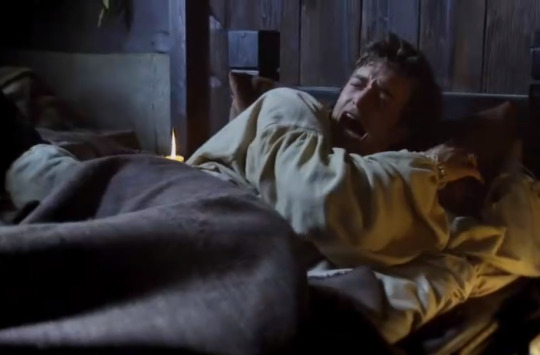


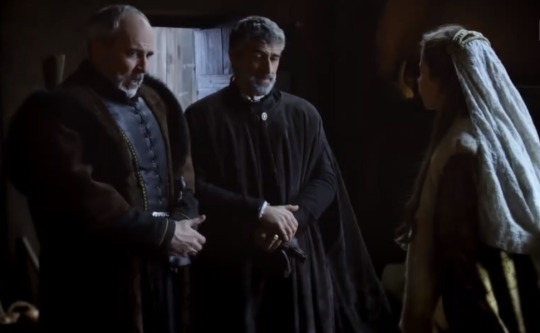
Doña Juana, who having seen her husband arrive in the village “riding with both legs on the same side of the mule”, gave the order, “from there they were not to move, no matter how much the need may be.” Juana personally administered the ointments prepared by royal surgeons. Without the slightest improvement.
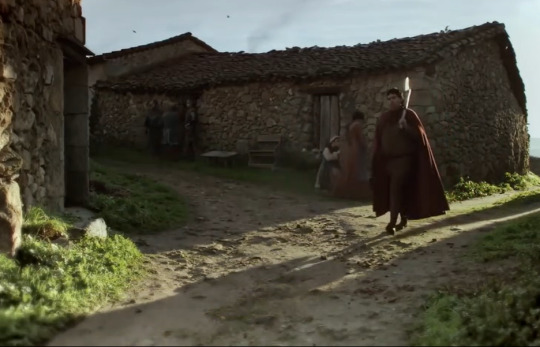
Meanwhile, Fuenterrabía was suffering from serious supply problems. The tiny fishing port had to house, feed and maintain a huge number of visitors among nobles, soldiers, and artisans. And the village started to run out of provisions and supplies for plenty of people and for countless days. The chronicler says that some nobles, who were used to eating five times a day in Flanders, became hungry. The soldiery and the plain people had to settle for eating once a day.
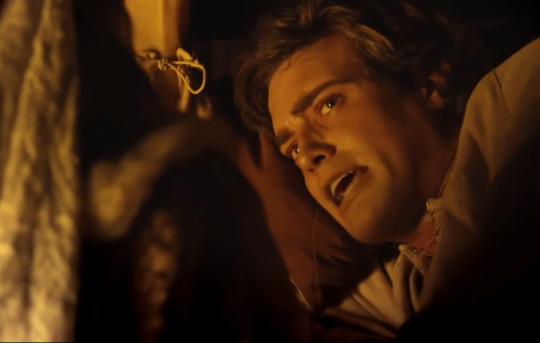
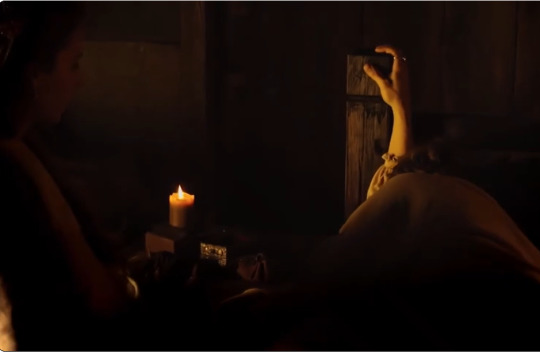
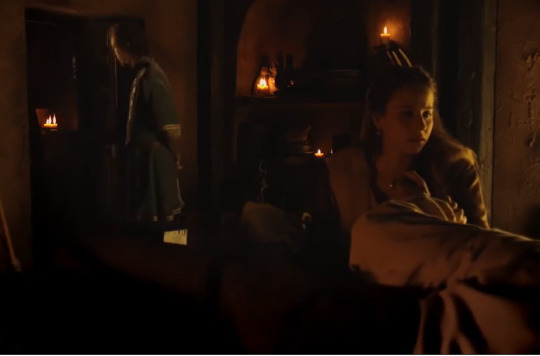
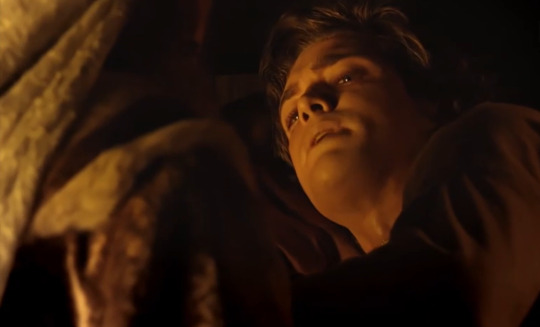
The archduchess was informed by a woman of the town about the near existence of a healer who was called "Aita Sorgin" (or 'father of witchdoctors" in "Euskera", the Basque language), an expert in healing all kinds of ailments.
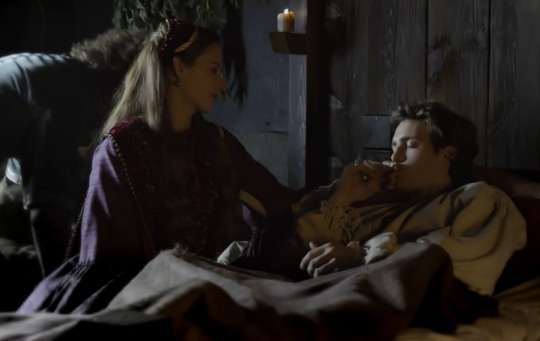

The royal surgeons and the Juana's chaplain opposed, ensuring:
"that in being wizards through, the devil will not walk very far."
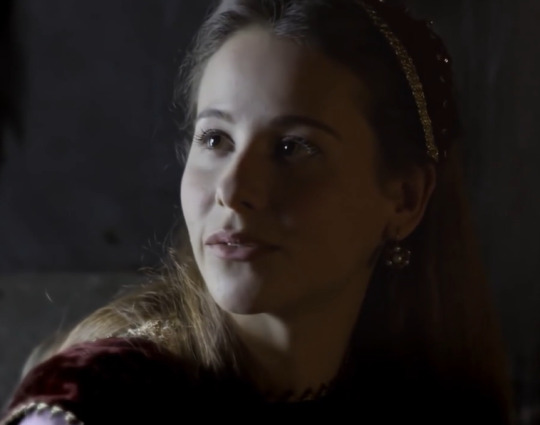
The princess insisted, angrily affirming
"That it has never been heard said, nor is it written anywhere, that the devil is interested in such vile parts of the human body."
With some herbs (probably "ruscus", associated with scrubs in oak forests; with properties equivalent to the components of the current antihemorroidals) and some washes, in a few hours the suffering of Don Felipe disappeared.


A grateful archduke of Burgundy asked him what he could do to compensate him. And the Shaman-like replied with his tone of raw Basque frankness that he only asked that they leave the village as soon as possible. Because if the whole entourage remained one more day, the population would be totally ruined for the rest of the winter.
#joanna of castile#juana i of castile#philip the handsome#juana la loca#isabel#juana the mad#philip de schone#Johanna van castilie#spanish monarchy#castilian#habsburg
5 notes
·
View notes
Text
On Wednesday, more than two years after they filed suit, the Metropolitan African Methodist Episcopal community finally got its day in court against the gang. Parishioners and congregants testified in D.C. Superior Court that they’re suing in part to deter the Proud Boys from future attacks.
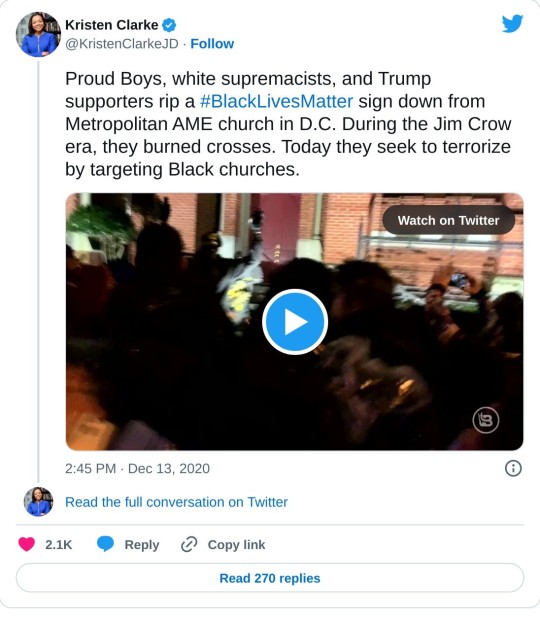
“We wanted to make a statement, that we will not shrink in the face of this,” Rev. William Lamar told Judge Neal Kravitz. “We know that this [Proud Boys] activity continues — and we have an opportunity to be clear that this is unacceptable, it is illegal, and it cannot continue.”
For Lamar, the Proud Boys attack was no act of petty vandalism, but a continuation of the kind of white supremacist violence and anti-Black intimidation that the Metropolitan AME community has been fighting for more than 200 years. The scene on Dec. 12 ― a racist gang of mostly white men desecrating symbols of Black solidarity outside churches — was familiar to this congregation.
“It’s more than doing violence to a sign — they seek to continue the violence their ancestors visited upon our ancestors,” Lamar said on a conference call with congregants the day after the attack. A video of the call was played in court Wednesday. “They don’t want to just ruin signs. They want to destroy lives. They want to destroy hope. They want to erase history. We won’t let them do that.”
It appears unlikely that Kravitz will award Metropolitan AME the full $22 million in damages, but bankrupting the Proud Boys is only one part of the battle. The legal team for the Metropolitan AME community at the Lawyers’ Committee for Civil Rights Under Law hopes the case will also shed light on the Proud Boys’ assets and finances, which remain largely murky and secretive.
Tarrio has long maintained that the Proud Boys organization is broke, and that he personally carries few assets. But multiple journalistic investigations over the years suggest the gang is pulling in substantial sums of cash from various sources. They’ve collected hundreds of thousands of dollars from online fundraisers set up to support their ongoing rallies and criminal cases (including $375,000 from 11 GiveSendGo campaigns in the wake of the 2021 Capitol attack), they collect dues and travel fees from their membership through Venmo payments, they maintain a number of shady LLCs, and they continue to mobilize large groups of people and considerable amounts of equipment across the country for their bloody rallies.
Painting a clear picture of the gang’s financial structure is one of the chief goals for the Lawyers’ Committee.
“The ultimate goal of this is not a monetary windfall. It’s to stop the Proud Boys from being able to do what they do,” Arthur Ago, director of the criminal justice project at the Lawyers’ Committee, told HuffPost. “They continue to raise money ... and that money’s being used to do the things we saw on Dec. 12, Jan. 6, and now at drag queen story hours in Ohio and New York and Maryland. That’s what we want to stop.”
The case appears likely to move in favor of Metropolitan AME. The Proud Boys have failed to respond in any significant way to the litigation, and didn’t appear to defend themselves in court on Wednesday.
The church has already won default judgments against Proud Boys International, LLC, and the rest of the individual defendants, including Tarrio. Members and affiliates of the gang will have opportunities to defend themselves when court resumes on April 7, and the defense team will have a chance to cross-examine witnesses. But overall, the Proud Boys’ opportunities to advocate for themselves in this case are dwindling.
#white supremacists#Black Church#the proud boys#white terrorists#With A Lawsuit#A Black Church Aims To Bring The Proud Boys To An End
2 notes
·
View notes
Text
Okay, so here’s the thing. I’ve gotten the hundred thousand responses to this post and I can state just from the comments and the tags that what everyone who’s sharing this wants is to avoid all of the garbage that goes with flying, but ALSO the current state of car culture in America.
The thing about traveling by high-speed rail is that we could, if some place looked particularly interesting, *get off*. With flying, we can’t really do that. We don’t want to have to drive, to pay for gas and worry the car will break down and get uncomfortable driving for hours even with breaks. I’ve driven a week-long road trip before as part of a trip for writing a book. I got to stop whenever I wanted, to go to West Virginia and Cleveland and Chicago. But driving *myself* would not have been my first choice, because for many, many, MANY of us it’s exhausting. (See: the neurodivergent, the disabled, the elderly. I struggle with fatigue due to depression and anemia and by Friday I was approaching too tired to be driving.)
If I could have gone on that trip by high-speed rail, I could have seen MORE. I would have been able to go farther than just Chicago before having to turn around so I could get back home by Friday night. I probably would have eaten a lot better when given the opportunity to do anything more than go through drive-throughs on my way to my next destination. I would have been able to ride in comfort and then get off in places I’d wanted to go but couldn’t reach during only a week off of work. Because a real passenger rail system, one that works FOR the passengers, has stops. Even the high-speed rail trains. Many, many stops. Especially in a country this big.
Plus, sometimes seeing the country is just … seeing it. From the safety of a train car. Because sometimes, we know full well that if we get off that train in a small town, it might not be safe. And I say this as someone FROM a small town, as someone who had to stand up at several town council meetings last year as a vocal member of the queer community because our mayor would like to build a community center that is queer-accepting, and every bigot in town promptly *lost their shit*. We have to deal with that. And God knows it’s not just us. I spoke with the husband of a Black woman who opened a bakery for a short time here, and he said at one point, “Yeah, being Black and opening a business in this town was probably a bad idea.” He didn’t elaborate, but … I mean, I’ve lived here almost forty years in total. I know these people. He didn’t have to.
During my road trip, I took a bisexual pride flag off my car for safety. And even then, I’m still a woman on her own.
Would I get off a high-speed rail train sometimes to see the sights on a cross-country trip? Sure, if I felt like it. But there are plenty of reasons people would want to let someone else drive them across the country, and avoid stopping in small towns and rural areas which might have pretty views but still have ugly attitudes.
“Nobody’s going to want to sit on high-speed rail for fifteen hours to get from New York City to LA.”
Me. I will sit on high-speed rail for fifteen hours. I’ll sit on it for days. I’ll write and read and nap and eat and then do it all over again. I’ll stare out the windows and see America from ground level and not have to drive. I’ll see the Rockies and the deserts and cornfields and the Mississippi River and your house and yours and yours too. I’ll make up stories in my head about the small towns I see as we go along. I’ll see the states I’ve yet to see because driving or flying there is a fucking slog and expensive to boot. I’ll enjoy the ride as much as the destination. And then I’ll do it all over again to come the fuck home.
143K notes
·
View notes
Text
Occupationism
Today, 12/11/24, after considerable searching, I found the article I wrote for Newtopia Magazine of my experience visiting the West Bank in 2004. Here it is:
In early 2004, I traveled to Israel and the occupied territories with a cousin who is a professor and member of the Faculty for Israeli-Palestinian Peace (FFIPP), a coalition that opposes Israeli occupation of the West Bank, Gaza and East Jerusalem. It should be noted that the delegation could not enter the Gaza Strip, which Israel has basically closed off to the international community. Here I'll focus on what I saw and the people I met in the West Bank, a perspective rarely or unfairly covered in American mass media, which is ironic considering that each year the U.S. gives more money to Israel than to any other country in the world. Americans should know where their taxes are going.
I arrive in Tel Aviv around 8:00 pm, and search for a shuttle to take me to the Notre Dame hotel where the next day I'll be meeting with 12 or so FFIPP members and Hanna Knaz, an Israeli who will be our guide. No one's heading to East Jerusalem so I'm bumped off of several shuttles and have to wait over an hour before getting my ride.
As requested, I'm dropped off at the Notre Dame Hotel but it's not in the old city where I was told it would be, and the attendant can't find my reservation. I ask if there's another Notre Dame inside the old city and there is. Minutes later, a Palestinian cab driver picks me up. The old city is not even a minute away, and we drive through one of the formidable, ancient, arched entryways that leads inside. Even at night, the largest of these, the Damascus Gate, built in the 1500s under the rule of an Ottoman sultan, is magnificent. Upon entering, three Israeli guards, wearing fatigue and sporting machine guns, briefly talk to the cabdriver then let us proceed. We ride on a narrow cobblestone street then reach another point where three Israeli soldiers sit. They stop the cabdriver, get up and begin sharply asking him several questions, their brusque tone especially unsettling because they appear to be about 18 and the cabbie is at least twice that. The imbalance of power is striking.
The Notre Dame in the old city turns out to be a hostel for Christian pilgrims, definitely not where I was supposed to meet the FFIPP, but it's considerably cheap and I'm exhausted. A woman named Rita brings me to a room and as we walk upstairs and onto a terrace, she says, "Best view in town." And it truly is something else. The huge gold dome of the Al Aqsa mosque is practically next door and it's all lit up. In the distance, hundreds of houses dot hilly landscapes and above them crosses, crescents and spires punctuate the night sky. For a person who's gone to Catholic school for 12 years yet no longer subscribes, it suddenly seems very odd to be in a place like this, and yet after what I've seen on the street it also seems kind of right.
Day 2
The next morning I meet with the delegation in Jerusalem at The Alternative Information Center (AIC), a Palestinian-Israeli organization that "disseminates information, research and political analysis on Palestinian and Israeli societies." Michael Warschawski, Director of the AIC and author of the forthcoming book "On the Border" (South End Press), discusses the rapid erosion of the Green Line, or the borders of the occupied territories. On a map, he demonstrates how the West Bank, a land about the size of Delaware, has been and continues to be broken into non-contiguous islands. Breaking them apart are Israel's building of the Wall and Israeli "settlements" that are connected by "bypass roads."
The words "settlements" and "bypass roads" make very caustic and volatile practices appear almost benign. The reality is that the Israeli government encourages its citizens as well as Jews from around the world to move into the West Bank and Gaza to secure more land, a practice that is illegal under international law. The Fourth Geneva Convention states, "An occupying power shall not deport or transfer parts of its own civilian population into territory it occupies," and several UN Security Council Resolutions, including 446, 452 and 465, state that settlements are not legally valid and should be removed.
After Warschawski's presentation, we board a bus and head to the Qalandia checkpoint in the West Bank… It's teeming with people attempting to get in and out, which can take hours, so a lo-fi kind of commerce has resulted, from young boys selling Chiclets gum to adults at small, makeshift tables selling food or dishware and plastic gadgets from China. Thanks to the yellow color of our Israeli license plates and our possession of American passports, we have no problem getting in, and zip freely through the region using the Israeli-only bypass roads. On our way, a curious thing: bordering both sides of the highway for miles are walls with drawings of trees and land. This marks one of many surreal moments during this trip. These walls are vistas devoid of people, when in fact what resides behind them are Palestinians.
After some time, the make-believe vista ends, and we're passing through hilly landscape when Warschawski says, "Okay everyone – look!" He points to a settlement at the top of a hill. The way most of us scramble over you'd think the settlement was a rare sight but once Warschawski points this one out we keep seeing them. They stand out sorely because most sit atop hills, often above water reservoirs so as to better control them, and they typically have red roofs. Ostentatiously short on character, they remind me of the plastic hotels from the board game Monopoly. These are houses that have been built and moved into very quickly.
Warschawski takes us to the Palestinian town of Abu Dis to see the Wall, which rises to different heights depending on the area you're in. When I first see it, the Wall is roughly 6 feet high. I observe a man helping an old woman who's attempting to climb over. I try to imagine my mother doing the same each day, and the fact is - I can't. Clearly this section of the Wall cannot stop a determined person from getting across, but it will cause difficulty and humiliation to civilians who need to go about their daily lives.
The Wall strangely dissects the neighborhood we're in, as if a crew of confused masons came by and plopped it there arbitrarily. As Warschawski demonstrated earlier on a map, the Wall does not follow the official borders of the territories, it weaves throughout them, greatly reducing Palestinian land, often appropriating valuable water resources. "Water is a microcosm of the occupation, a metaphor depicting the divergent fortunes of two groups, one with power to control where water flows, the other suffering from an enforced thirst," states author and professor Gary Fields. "Contrary to our image of the region as an arid place, the West Bank is rich in underground aquifers. Historically, Palestinians succeeded in tapping these springs as a source of sustenance and sustainability...After 1967, Israel, upon surveying Palestinian water wells in the West Bank, issued four edicts that would alter the way water would be allocated and controlled..." These edicts have made many Palestinians dependent on Israel for water. In districts such as Jayeous, residents receive water every three days and only for a couple of hours.
Warschawski takes us to a more secluded area of Abu Dis where the Wall rises to a formidable 25 feet. A recent U.N. report said the lives of as many as 400,000 Palestinians will be disrupted by the Wall. Its presence strangles commerce, prohibits access to work, school, health care...In the region of Qalqilya, the Wall encircles the town. Gates are scheduled to open at certain hours but Israeli guards are often late, a practice that further disrupts any semblance of a normal life for civilians. Abdul-latif Khaled, a Palestinian hydrology engineer who lives in the area said, "There is a big difference between a prison and what the Wall has done to us here...In prison, the authorities try to keep you in. Here, the Israeli authorities are trying to make us go out."
Building of the Wall has also escalated the Israeli army's practice of mowing down olive groves, the livelihood of many Palestinians. Some trees have existed for hundreds of years. Aside from the irony of the destruction of a historical symbol of peace, there's the very disturbing reality that livelihood, nature and centuries of time can be so easily wiped out in minutes.
Olive trees are what triggered army commander Rami Kaplan to leave the Israeli Defense Force (IDF) after ten years. "One day we came to a Palestinian town without notice. We had 2 bulldozers, tanks and infantry, and started cutting line by line of olive trees. From the beginning, I refused to be part of such a mission but one day I agreed to replace a commander who was out…I was standing on a hill, seeing our tanks and bulldozers as they started crossing the fence and going into an area that was to be stripped. When the Palestinians saw the vehicles approaching they ran into an orchard to collect as many olives as they could before the trees were cut. Then, when our forces approached and it became too risky for them, they left and went to a distant area, sat and watched bulldozers cut, line by line, the trees."
Rami, along with two of his colleagues, spoke to the FFIPP delegation in Tel Aviv, in the basement office of Courage to Refuse, a refusnik organization that formed in 2002 when 50 officers and soldiers signed The Combatants Letter. Printed in Israel's daily Ha'aretz, the letter sparked considerable controversy. The initiators of the letter were Captain David Zonshein and Lieutenant Yaniv Itzkovits, officers in an elite unit. After having served four years in compulsory service and another eight years as reserve soldiers, including periods of active combat in Lebanon and in the occupied territories, they concluded that "the missions confided to them as commanders in the IDF had in fact nothing to do with the defense of the State of Israel, but were rather intended to expand the colonies at the price of oppressing the local Palestinian population." The letter inspired 200 other signatories to join them in less than two weeks.
Chan Alon, a refusnik who served for years as an IDF commander told us, "Things changed when I started understanding that the Israeli army is not simply a defensive force. The height of this feeling came 2 years ago when I went to the occupied territories as a father of a 3-year-old daughter, and suddenly I had a different perspective ...When you're a 19-year old soldier, you don't understand what it is for parents of a child to stay in their house for two weeks under curfew … In the last days of my service, they called us to demolish a Palestinian house in the village of El Hada…I asked why and they said ‘because they have an illegal balcony.' I told them I couldn't do it, that people from the village will come and try to prevent it, that they'll have weapons. And I was told, ‘Now you're starting to understand the action.'"
Later That Afternoon
We leave Tel Aviv and head to the West Bank to see a settlement called "Ariel." The generic, functional design and primary colors of Ariel's buildings give the town a make-believe feel. We stop at a supermarket that's bustling with shoppers and I approach several and ask if I can interview them on video. All say no, except for a man who can barely speak English, and another man who speaks fluently but doesn't say much except that he doesn't live inside the settlement, just attends university there because he would otherwise not be able to afford such a reputable school. It's a telling statement. While many people move to settlements to appropriate land, there are also some, such as recent Jewish immigrants from Russia and Ethiopia, who move to them for financial reasons as the Israeli government bestows settlers with fabulous economic incentives in order to increase population. In Ariel, we passed signs advertising ultra-cheap property for which 90% of the cost would be given as mortgage by the bank, 10% by a mortgage company.
Evening
We approach a checkpoint. The traffic is phenomenal. Lines of barely moving cars travel in both directions but divisions are not clear and sometimes cars meet head on. Civilians walk through this mess and the sound of motors and horns relentlessly persists. It takes about an hour and a half to finally get out.
Day 4
The 2nd International Conference "An End to Occupation. A Just Peace in Israel-Palestine: Towards an Active International Network" begins. Hundreds of academics and speakers from around the world attended this two-day conference. Speakers included Judith Butler, Ilan Pappe and Dr. Hanan Ashrawi, recipient of the 2003 Sydney Peace Prize. The dialogue created by these speakers was informative and often inspiring but it was a Palestinian audience member who spoke impassionedly about Israel's continuing takeover of water and land, and the humiliation of the Palestinian people, that moved me most. He looked like someone's grandfather with white hair, glazed blue eyes and a slight hunch. He spoke English fluently and wore a blue suit. My cousin and I asked if we could videotape/interview him and he said yes.
We met up with Mr. Nashashibi that afternoon. He was born in Jerusalem in 1925, and though the house he grew up in is still there, he is not allowed to live in it because he joined the army and fought for Palestine during the 1948 war. For many years, he lived in Syria and Jordan. He's had a decades long, prestigious career in finance, and presently serves as a Member of the Executive Committee of the P.L.O.
"During the Jordanian administration, I used to be able to visit my parents in Palestine each year but after 1967 and Israeli occupation, I was not allowed to visit until I returned to live here in 1994."
Nashashibi discussed the nightmare of travel in the occupied territories, how permits are required to go from area to area within Palestinian territory. "Something I will never forget is that my younger brother was sick in Jerusalem in July and I applied to visit him. They did not give me permission until he died, so I couldn't see him until his funeral."
When asked about settlers and how some claim they have a right to stay in the occupied territories now that a third generation is being born, Nashashibi responds, "What about those who lived here for hundreds of years? I am one of them. My family lived in Palestine for 850 years and now I cannot go back? How can you explain this to me?"
We talked for a long time with Nashashibi and when things were winding down he said, "I'd like to respond to the issue of terrorism. In accordance with the Geneva Convention, we have the full right to raise arms against occupiers. Why are we deprived of that right and when we practice that right we're considered terrorists? ...The Israeli army demolished Jenin, Rafah and now they're killing people in Nablus. Why isn't this criticized by the U.S. media? We have the right to resist …Settlers are occupiers, the army defends them, and we can't just look at them and say ‘God bless us, we hope that they'll leave peacefully because they won't."
We're heading to Ramallah. At the checkpoint in Aram, an old man leans on a cane and begs for change, young boys sell Chiclets, and I observe the great range of Palestinian women's clothing – from jeans and trendy tops to the traditional robe. None have their faces covered.
We drive in the Eastern part of the West Bank, on an Israeli-only highway, and head to Birzeit University. Once there, we meet with 5 professors and 4 students. After introducing ourselves, one of the professors leaves after learning that Hanna is Israeli. She apologizes and says her actions shouldn't be taken personally but if she stays it could give people the false impression that Palestinians and Israelis are on equal ground. The remaining professors and students speak with us about the life during occupation.
Reem Wahdan, a female student who speaks fluent English, states, "It horrifies me to see that a 10-year-old kid in Nablus is not scared to hang onto a tank. What kind of people are we creating in this society? Traumatized children and murderers, yes, on both sides, and this will come to back to our societies, this occupation. Whenever I think of Ramallah as a prison it kills me. I have an American passport but because I have a green ID card, I can't go in and out of it. It's amazing."
In 1988, the Israeli army closed Birzeit University. It did not reopen until 1992 although during those 4 years the University continued operating underground. Today, students have to struggle with checkpoints, some of which are roaming, in the sense that Israelis will come and suddenly set up shop in different areas without warning. Often this shuts the university down because it takes students hours to get in. For the past month, the road to the university has been opened.
"This is my last year at Birzeit. I'm in my 4th year. Every day, I wake up and wonder what life will look like in the future," says Abeer Avekat. "Life in Jerusalem is important, we go there to pray and everything ... but it takes 3 hours to get here because of the checkpoints. When I reach here I don't want to study."
Wearing a denim cap and hoop earrings, a student named Hiba Darwish states, "After September 11th, our image in American media became considerably worse. Just imagine how it feels when there's no justice in the world … I've met lots of Americans and it surprises me how they don't know what's going on. They only see Israel on the map. I tell them I'm from Palestine and they think I'm talking about Pakistan."
Later that night
We're staying in Ramallah. I take a walk with a few other FFIPP members to get dinner. On our way we pass numerous posters of Palestinians who have died or who have been imprisoned. We walk to a densely populated area with shops and men standing on corners vending smoked corn on the cob and other snacks. Graffiti lines the walls. One line, written in English, states, "The world closes its eyes, but we see all crime."
Day 7
We head to Jenin. On the way we pick up a female Palestinian Doctor who, along with Hanna who is a nurse, works for Doctors Without Borders. When we get to the checkpoint, soldiers question Hanna extensively: Why do we want to go into this particular area?
45 minutes and several phone calls later, we're able to go through. Because of Israeli roadblocks, we're told it's going to take a while to get from this checkpoint, by the small village of Jelamy, to Jenin. Or, as a young Palestinian cabbie poetically put it, "It used to take one cigarette to get from here to Jenin, but now it takes a whole pack."
One pack of cigarettes later and we're in Jenin. We leave our bus and walk past a horse made of large scraps of colored metal that stands in the center of a crossroads. The word "ambulance" is written across one of the metal squares that come from vehicles demolished in April 2002.
On April 3, 2002, Israel invaded the Jenin refugee camp, claiming it a "hotbed of Palestinian militancy," and declaring it a closed military zone. Depending on whom you ask, what followed was either a battle or a massacre. Terje Roed-Larsen, a United Nations Envoy who toured the Jenin refugee camp about a week and a half afterwards, was quoted in the BBC news as follows, "It is totally destroyed, it looks like an earthquake has hit it … I am watching two brothers pull their father from the ruins, the stench of death is horrible. We are seeing a 12-year-old boy being dug out, totally burned … It is totally unacceptable that the government of Israel for 11 days did not allow search and rescue teams to come. This is morally repugnant."
Human Rights Watch (HRW), the largest human rights organization based in the United States, conducted a weeklong fact-finding investigation in Jenin in late April 2002. The following comes from their website: "The Israeli Defense Force's (IDF) campaign caused extensive and disproportionate destruction of the civilian infrastructure of the camp, particularly in the Hawashin district following an April 9 ambush of Israeli soldiers there. In contrast to other parts of the camp where armored bulldozers were used mainly to widen streets, in Hawashin they razed the entire district. Throughout the camp, at least 140 buildings were completely leveled, many of them multi-family dwellings, and more than 200 others were severely damaged, leaving an estimated 4,000 people, more than a quarter of the population, homeless … During most of ‘Operation Defensive Shield,' the IDF blocked emergency medical access to Jenin camp. Soldiers repeatedly fired on Red Crescent ambulances and in one case shot to death a uniformed nurse, twenty-seven-year-old Farwa Jammal, who had come to the assistance of a wounded man."
It's a rainy day in Jenin. We head to the local hospital, the only one, we're told, in a district of 350,000 people. Inside, the jacket I'm wearing can't keep out the chill, and we walk through hallways packed with people moving about or standing against the walls waiting. We head upstairs, which is just as cold and crowded, and head to the office of the hospital's director, Dr. Mohammed I. Abu-Ghali. Several bullet holes mark a wall.
Dr. Abu-Ghali talks about April 2002. "The hospital became a prison. We had nothing – no food, medication, and they didn't permit us to get out. Even going to the windows was impossible … they would shoot at us. We told them we had bodies here and had no place to put them, there was no room in the morgue. There were several Israeli tanks by the hospital. One day the Red Cross was permitted to come here. They had to walk, they couldn't use cars. And the IDF gave us two hours to bury bodies in the garden for the first time."
After talking with Dr. Abu-Ghali, we leave and walk in muddied streets to an area about the size of a football field. It's littered with rubble. One can see that houses once stood here, as some fragments remain. An old man wearing a suit jacket smokes. A lone boy stands in the street watching us, hands on hips, lips down-turned, gray eyes staring. We pass a lone house where one wall on the second floor is missing. A curtain hangs across it. People are still living there. In the distance, I see that new houses are being built, and a large blue sign states in English and in Arabic, "United Nations Jenin Camp Rehabilitation Project. Donor – UAE Red Crescent."
It's my seventh day on this delegation, and I have a pounding headache. A group of children come over. They're 4, 5, 6, 7 years old. They don't say much just observe us from several feet away and smile. I take a seat on the ground when a Palestinian boy appears and shyly points to my video camera. I tape him for about 15 seconds and play it back for him. He wears a sweater that's several sizes too large and there's a hint of a smile on his face.
I walk up a hill and videotape the landscape. Minutes later, someone gently tugs my sweater. I turn to see the boy who I had videotaped earlier. He suddenly stops smiling when he sees my troubled face. My one regret during my time in the occupied territories was that I couldn't figure a way to hide my emotions from him.
My cousin and I head to the Qalandia checkpoint where an international women's group, including Palestinians and Israelis, will be demonstrating against the occupation. We're with Kathy Kamphoefner, an American and Quaker representative to Jerusalem. Since we're early, my cousin and I interview her.
"I work for the American Friends Service Committee. My job, along with my husband Paul Pierce, is to advocate for peace and justice in this area. I've been living off and on here for 8 years, mostly in Hebron."
It's not even noon and there's standstill traffic at the checkpoint. Kathy starts describing the scene. "Here there's a large road and two sets of fences … To the left there are taxis to many destinations. It's a good example of how convoluted the system of checkpoints has made things … We can see a whole series of settlements on the hilltops. They go from hilltop to another to another. And that's the settlement strategy. They're planted on hilltops, and originally it's just a few caravans or mobile homes, and then permanent housing is constructed, and then after that they tend to come down the hillsides so eventually where you see hillsides next to each other, they'll construct one continuous settlement and confiscate all the land in between them, thereby constructing a whole settlement block."
After some time, a group of women begin forming. Many are elderly. Israeli soldiers in full riot gear hover around. Signs read: "International March for Freedom and Peace." "Tear Down The Wall." No Peace Without Palestinian Inalienable Rights." Some signs are in Hebrew. The women start chanting "Occupation No More."
Kathy adds, "The Palestinian people are not going to give up. They have lived in this land all their life, as have their grandparents and their grandparents before that. They have deeds for those lands, in most cases. Even when homes are demolished it's on land that belongs to them."
We walk to the demonstration. There are about 150 women protesting. I talk with one who is from the Netherlands who says that women from over 16 countries are there. I ask about her visit to Israel and the occupied territories, and she says, "We saw many things we knew already, but still it's a shock to see it. We're here for an end to the occupation. It's useless and terrible."
After a couple of hours, my cousin, Kathy and I decide to leave. When we get to the Israeli side of the checkpoint, we see about 50 women with signs who are not being allowed to join the demonstration. I speak to one of them, an American named Ridgely Fuller. "I've passed here many times before, and there's never been a problem," she said. "So what concerns me here is that a lot of people want to have a peaceful non-violent resistance but from what I see the Israeli government is preventing that."
Kathy adds, "I ask the American people to investigate this because what they see on the news is not the reality of what's on the ground. The reality is a phenomenal system of oppression of the Palestinians by the Israeli occupation…and the American people are paying for this … The absence of American funds would really make a big difference in peace in this area."
Postscript
In 2004, the 1965 film "The Battle of Algiers" was re-released. Parallels between French occupation of Algeria and Israeli occupation of Palestine are striking. In the last scene of the film a French soldier asks a crowd of Algerians what they want. The response is, "Freedom. Our pride. Independence." And if there's anything that's most disturbing when in the occupied territories it's how the Israeli occupation strips dignity from the Palestinians or at least makes a very concerted effort to do so. Checkpoints are a notorious area where abuse and humiliation are practiced, and groups such as International Checkpoint Watch and Machsom Watch (formed by Israeli women) attempt to monitor and hopefully temper this.
Intense news breaks out from the occupied territories and Israel so often it's hard to keep up. In May, Israeli forces fired a missile and a tank shell into a crowd of Palestinians that was protesting the invasion of a neighboring camp. At least 10 Palestinians – all children and teenagers – were killed, and at least 50 were wounded. Earlier this year, Ariel Sharon announced that Israeli settlers will be moved out of the Gaza Strip and parts of the West Bank, while some settlements in the West Bank will be expanded. This fuzzy logic was heartily approved by George Bush who casually forgot to include a single Palestinian in his discussions with Sharon, yet shook hands with him and told the Palestinians to be brave. This came only weeks after the Israeli army killed the Palestinian spiritual leader Sheikh Ahmed Yassin, an incredibly provocative act. (Provocation, some say, is Sharon's modus operandi as it gives him sanction to commit further incursions upon Palestinians.)
Most recently, the International Court of Justice deemed Israel's Wall illegal. On July 20, 150 countries of the United Nations General Assembly (including all of the European Union) voted in favor of the International Court's request that Israel dismantle the illegal Wall. Only six countries voted against this. The six? The United States, Israel, Micronesia, the Marshall Islands, Australia and Palau…
1 note
·
View note
Text
Tabloid Iltalehti tell readers on Monday morning that preparations are continuing at the Vartius crossing point on Finland's border with Russia to deal with an expected growing number of people seeking entry.
The paper writes that according to the information it has, hundreds of asylum seekers arrived in the town of Kostamus, on the Russian side of the border on Sunday afternoon.
The Vartius crossing was closed for the day on Sunday at 6pm. Finnish authorities constructed additional barriers made of planks and barbed wire at the station.
The commander of the border crossing, Border Guard Captain Jouko Kinnunen, said at the time that the construction of barriers would continue during the evening.
The Finnish Defense Forces has provided construction assistance.
Iltalehti writes that the Vartius border crossing was temporarily closed several times over the weekend due to the actions of the Russian authorities, who forced undocumented travelers into the border zone, closed the gates behind them and forced them to seek entry to Finland.
The paper adds that Finnish authorities have been in communication with Russian officials asking them to comply with border joint control agreements. So far, says Iltalehti, these messages have fallen on deaf ears.
If necessary, the Vartius border station can be completely closed in the same way as the border crossing points in southeastern Finland.
The processing of asylum applications is currently being concentrated at the Vartius and Salla border crossings.
Continuing support for Ukraine
The results of a poll by the farmers' union newspaper Maaseudun Tulevaisuus shows that the majority of Finns support the continuation of arms aid to Ukraine.
Of those who responded to the survey, 60 percent said that they want arms aid to Ukraine to continue at its current level. So far, Finland has provided defence materiel support to Ukraine worth some 1.5 billion euros.
On a separate issue, almost half of the respondents stated they would be in favour of imposing sanctions on China if it is proven that a Chinese ship was involved in damaging the gas pipeline between Finland and Estonia. A fifth of the respondents rejected possible sanctions.
More than 80 percent of the respondents said they want to keep eastern Finland and rural areas of the country inhabited for security policy reasons. Only around six percent of the respondents did not see this to be important in terms of security policy.
The Maaseudun Tulevaisuus poll was carried out by Kantar Agri which interviewed 1,024 people for the survey on 5–10 November.
Nuclear plant offline
A number of morning papers, including Ilta-Sanomat, report that electricity production was suspended at the Olkiluoto 3 nuclear power station on Sunday evening as a result of a fault at its turbine plant.
According to Johanna Aho, communications manager for the operator Teollisuuden voima (TVO), the fault has no effect on the power plant's nuclear safety.
Olkiluoto 3, which is located at Eurajoki in western Finland, is the largest single power plant unit in the Nordic electricity system. It is also the largest nuclear power plant unit in Europe and the third largest in the world.
Regular electricity production by Olkiluoto 3 started in April this year, 14 years behind the original launch schedule.
The electrical output of Olkiluoto 3 is approximately 1,600 megawatts. The three nuclear power units at the site produce about 30 percent of Finland's electricity.
More snow and freezing conditions
Helsingin Sanomat looks at the latest forecast by the Finnish Meteorological Institute, warning readers to expect more snowfall throughout the country this week.
Up to 15 centimeters of snow is likely to accumulate in central parts of the country. Northern areas will see less snowfall, but temperatures that may fall to as low as -30C.
A storm forecast for midweek will create widespread hazardous driving conditions, HS notes.
On Wednesday, traffic conditions are expected to be bad in the western half of Finland and up into Lapland. By Thursday, snow and windy weather will move into eastern areas, bringing a warning of hazardous driving conditions in almost the whole of the country.
0 notes
Text
Saturday, November 18, 2023
Can’t Think, Can’t Remember: More Americans Say They’re in a Cognitive Fog (NYT) There are more Americans who say they have serious cognitive problems—with remembering, concentrating or making decisions—than at any time in the last 15 years, data from the Census Bureau shows. The increase started with the pandemic: The number of working-age adults reporting “serious difficulty” thinking has climbed by an estimated one million people. About as many adults ages 18 to 64 now report severe cognitive issues as report trouble walking or taking the stairs, for the first time since the bureau started asking the questions each month in the 2000s. The sharp increase captures the effects of long Covid for a small but significant portion of younger adults, researchers say, most likely in addition to other effects of the pandemic, including psychological distress. Emmanuel Aguirre, a 30-year-old software engineer in the Bay Area, had Covid at the end of 2020. Within a month, he said, his life was transformed: ‘I felt like I was permanently hung over, drunk, high and in a brain freeze all at once.’ He stopped dating, playing video games and reading novels, though he managed to keep his job, working remotely. Some of his physical symptoms eventually abated, but the brain fog has lingered, disappearing at times only to steamroll him days later.
Finland to close 4 border crossing points after accusing Russia of organizing flow of migrants (AP) Finland will close four crossing points on its long border with Russia to stop the flow of Middle Eastern and African migrants that it accuses Moscow of ushering to the border in recent months, the government said Thursday. Finnish Prime Minister Petteri Orpo and Interior Minister Mari Rantanen said the southeastern crossing points—Imatra, Niirala, Nuijamaa and Vaalimaa—will be closed at midnight Friday on the Finland-Russia land border that serves as the European Union’s external border. It runs a total of 1,340 kilometers (832 miles), mostly in thick forests in the south, all the way to the rugged landscape in the Arctic north. Dozens of migrants, mostly from the Middle East and Africa, have arrived in recent days at the Nordic nation without proper documentation and have sought asylum after allegedly being helped by Russian authorities to travel to the heavily controlled border zone.
Russian musician sentenced to seven years for trivial antiwar protest (Washington post) Alexandra Skochilenko, a pacifist Russian artist and musician with no prior history of political activism, was sentenced to seven years in prison by a St. Petersburg court, for a trivial antiwar protest: covering five supermarket price tags in March of last year with stickers giving information about Russia’s war against Ukraine. Skochilenko, wearing one of her trademark bright hippie shirts with a red heart emblazoned on the front, fixed her eyes on Judge Oksana Demyasheva and told her: “Everyone sees and knows that you are not judging a terrorist. You are not judging an extremist. You are not even judging a political activist. You are judging a pacifist.”
Troubled times for Syrians in Turkey (BBC) Turkey hosts the largest population of refugees and asylum seekers in the world. These include around 3.6 million Syrians, who fled there during the war in their country. Now many of those Syrian refugees feel forgotten and unsafe once more, while tensions with locals are higher than ever. Seven years ago, the EU handed Turkey six billion euros in a deal to stop Syrians heading to Europe. Since then, many Turks say their welcome has worn thin. And now, the Turkish government is deporting Syrians it says are in Turkey illegally, back to the warzone. Karam was 19 when the President of Syria, Bashar al-Assad, had security forces fire on peaceful protesters and arrest hundreds of citizens. Karam was one of those arrested, and after being released he eventually paid a people smuggler to take him to Turkey. He believes that he will be arrested and tortured if he returns to Syria. But he is also afraid to stay in Turkey, saying that local Police ask for his papers around five times a day. What is next for Syrians living there?
In China, state media does U-turn on US (Washington Post) Chinese leader Xi Jinping’s meeting with President Biden this week was an unmitigated success, according to the Chinese version of events, as state media made an about-face so abrupt it caused whiplash on social media. After months of criticizing the United States for trying to contain China’s growth, state-controlled Chinese websites were filled Thursday with reports on the “positive, comprehensive and constructive” talks between the leaders of the world’s two largest economies. This left more than a few Chinese social media users confused, report our colleagues Meaghan Tobin and Lyric Li. “I haven’t been online for two days … a look at the trending topics shows the atmosphere between China and the U.S. is as if a couple in an arranged marriage fell in love,” read one post on the Chinese microblogging platform Weibo.
How China strong-armed its way into dominating the South China Sea. (NYT) Beijing says many of these boats are just fishing boats. But they bristle with machine guns, rocket-propelled grenades and high-velocity water cannons. They’re here for intimidation. This fleet, built largely with government money, helps China dominate one of the most crucial and disputed waterways in the world: the South China Sea. Working in tandem with an aggressive coast guard, these militarized fishing boats assert Beijing’s presence more than 1,000 miles from the Chinese mainland. The boats patrol the tiny, disputed Spratly islets. Their reinforced steel hulls make it easy to ram smaller boats. They swarm other countries’ outposts and squat on shoals within sight of foreign coastlines. These fishing boats, most of which don’t actually fish, make up a maritime militia that is upending the rules of the sea. By providing backup to the China Coast Guard and maintaining a constant presence in remote waters—often parking on contested reefs for weeks at a time—they amplify China’s ambitions in the South China Sea. Beijing has used similar methods across its vast frontier, from the mountainous borders with South Asia to rocks in the East China Sea. And once China incrementally takes over, a new reality reigns.
‘Israeli public in a bubble,’ journalists says (CJR) Writing for Jewish Currents, Jonathan Shamir traces how Israeli officials have sought to discredit the reporting of journalists in Gaza—and to justify violence against them—by casting them as accomplices of Hamas. As a result, “the Israeli public is in a bubble,” Oren Persico, an Israeli journalist, said. “It doesn’t understand why the world is angry.”
Aid to Gaza halted with communications down for a second day, as food and water supplies dwindle (AP) Communications systems in the Gaza Strip were down for a second day Friday with no fuel to power the internet and phone networks, causing aid agencies to halt cross-border deliveries of humanitarian supplies even as they warned people may soon face starvation. Gaza is now receiving only 10% of its needed food supplies daily, and dehydration and malnutrition are growing with nearly all of the 2.3 million people in the territory needing food, said Abeer Etefa, a Mideast regional spokeswoman for the United Nations’ World Food Program. “People are facing the immediate possibility of starvation,” she said from Cairo. With few trucks entering Gaza and no fuel to distribute the food “there is no way to meet the current hunger needs,” she said Thursday. “The existing food systems in Gaza are basically collapsing.” With hospitals under siege and humanitarian supplies paused, U.N. human rights chief Volker Turk warned of “massive outbreaks of infectious disease and hunger,” adding that if fuel supplies run out entirely, Gaza would likely see the collapse of its sewage system and health care.
Thousands of bodies lie buried in rubble in Gaza. Families dig to retrieve them, often by hand (AP) The wreckage goes on for block after devastated block. The smell is sickening. Every day, hundreds of people claw through tons of rubble with shovels and iron bars and their bare hands. They are looking for the bodies of their children. Their parents. Their neighbors. All of them killed in Israeli missile strikes. The corpses are there, somewhere in the endless acres of destruction. More than five weeks into Israel’s war against Hamas, some streets are now more like graveyards. Officials in Gaza say they don’t have the equipment, manpower or fuel to search properly for the living, let alone the dead. More than 11,400 Palestinians have been killed, two-thirds of them women and minors, according to Palestinian health authorities. The U.N. humanitarian affairs office estimates that about 2,700 people, including 1,500 children, are missing and believed buried in the ruins.
Gaza’s economy obliterated (Washington Post) The solar energy company Sunbox paid its 15 full-time employees in Gaza this month. But next month is uncertain: The company’s main offices in Gaza City were destroyed in an Israeli strike. With its office obliterated, its revenue cut and its employees sheltering from Israeli bombardments, the company, like most in the Gaza Strip, has bleak prospects in the months ahead. Gaza’s economy already was crumbling. The war has pounded it to dust. Last year, 80 percent of the population relied on international aid, according to a United Nations estimate. Most of whatever economic activity persisted has ground to a halt amid Israel’s response to the Hamas-led attack on Oct. 7. Bombardments and a ground invasion have left more than 11,400 Palestinians dead, according to the Gaza Health Ministry. Some 1.5 million people—much of the population of Gaza—have been displaced, according to the United Nations. “Gaza’s economy ceased to function as of the last quarter of 2023, and will continue to be so indefinitely,” read a statement this month from the Palestine Economic Policy Research Institute.
Bodies unearthed and bridges swept away (BBC) At least 32 people have been killed across Somalia after devastating floods which followed years of drought. The UN warns that more than 1.6 million people could be affected. Correspondent Sahnun Ahmed reported: Following Somalia’s worst floods in a century, gushing waters have swept through a cemetery in the central city of Galkayo, leaving bodies floating through the streets. The gruesome sight has haunted residents like Ayaan Mohamed, who lives near the graveyard. Somalia’s fragile, UN-backed government has been trying to provide emergency relief, but it says it cannot cover all the affected areas.
Madagascar Votes Amid Violence and Calls for Boycott (NYT) After weeks of political violence, voters on the island nation of Madagascar went to the polls on Thursday to elect a president, even though 10 of the 13 candidates called for a boycott, accusing the man they are vying to replace of unfairly tilting the process in his favor. Most of the 30 million residents of this nation off the southeastern coast of Africa live in poverty. A series of weather-related catastrophes in recent years have damaged the country’s agricultural production, its economic mainstay, increasing the humanitarian crisis. Madagascar is heavily reliant on foreign aid, and there are fears that a disputed election could cause some benefactors to pull back support, which “will lead the country to a chaotic situation,” said Andoniaina Ratsimamanga, a spokeswoman for the Red Cross, which is helping with the humanitarian response in Madagascar.
0 notes
Text
The state I live in (Minnesota) has passed laws that protect trans people. I don’t really have a way to take anyone in myself, but if you need to move my state is protected. You might want to check what the town you move to is political history wise, but in general if it’s a place with a lot of travel and a decent amount of people it’s probably not the worst. I’m only demigender and don’t really look that remarkable, so I can’t say I have much personal experience outside of having friends and knowing people in the area. The south eastern part of the state has several cities and is a relatively safe bet (although nowhere seems to be totally safe in this country unfortunately) followed by deluth and then Moorhead. Avoid Fargo if you move there though. I know the communities are very intwined there but there is very much a difference between the two when it comes to things like lgbtq people. Legally and to an extent socially, just on either side of a river. I never really thought too much about it until Covid hit and people on the Minnesota side would be wearing masks everywhere but you crossed the river into North Dakota and there were barely any people wearing them. It was wild. Anyway, im rambling and im not about to say “this is the single safest place in the country!” But it is probably the safest state in the region.
Anyway, where I was going with this was, wherever you end up in this state (should you come here) be aware that weather here swings between extremes throughout the year. In winter we can get into the negative double digits, and in summer we can get over one hundred degrees (both Fahrenheit). This means that you need to be ready for both. That is a life and death matter. Also, everywhere I’ve been in the state has it’s own extreme winter weather twists. I’m Moorhead when a winter is really wet/snowy you’ll have to take flooding into consideration. I’ve heard the same about the twin cities (the biggest ones) to a lesser extent. Duluth is basically on an inland sea with winter extremes and a lot of up and down roads. Fun for a summer trip but harsher in winter. Both Duluth and Moorhead are big but the farther north you go the more extreme the winters tend to be. Minneapolis/Saint Paul (and it’s hoard of smaller neighbors) do experience Minnesota winters, but they usually get slightly less cold on average. Their tornado season is earlier than Moorhead and Duluth’s (Duluth doesn’t really have much of a tornado season, you get freshwater sea stuff instead) and the twin cities do tend to run a little hotter in summer. I’m sure people will be like “hey! You left out my decently sized population town in your ramblings!” And sure, if you want to add more go ahead. I’m just covering the biggest population spaces. The twin cities (and the surrounding areas) is the most populous. Moorhead is second I believe but there is a very big drop in numbers between the two. I think Duluth has the lowest population but I’m not totally sure about the difference between Moorhead and Duluth population wise. 🤔
Anyway, I’m sure that there are better guides to the state than me, but I at least wanted to share my personal knowledge.
The one thing I want you to take from this if you are moving here is MAKE SURE YOU ARE READY FOR THE WEATHER or at least as ready as you can be.
The second thing would be, if you want to blend in more, go for the twin cities, Moorhead has its own charm though in there being a slightly more closely feeling community. I’m not going to pretend everyone knows everyone, but there is more fuss when some violent drama happens. I haven’t lived there in seven years though. I live nearby (relatively speaking) but no longer in town. The main reason I think you might consider that one is it’s a bit less expensive.
I’m not trying to make a sales pitch, I’m just trying to get my limited knowledge out there. There are also a lot of support programs through various local (state and some counties) governments for disabled people. They are as convoluted as anything else in this country, but they are the reason I can live on my own (with the assistance). Honestly, I have more experience with being a disabled person in my area than being a queer person, just because mine is kinda subtle I guess. USE MORE SOURCES THAN JUST ME! But I hope this at least something to help you get started in case any of my followers need to move to my beautiful hot cold wet state.
This one is a mess, I’ll try to make a cleaner version, although that might not have the population information
I’m making this one unrebloggable because it is messy. My more recent one is better in my opinion
#emma posts#I really hope that this would be a better start than nothing#but I’m not visibly queer and I currently live in a town that is actually smaller than it looks so I can’t explain everything#BE PREPARED FOR THE WEATHER#that is my main point#I think I’ll make a separate post just for that actually#I’ll probably be editing or adding to it several times after I make that one#i just want to give some idea of how things are here#do your best to find other local weirdos#sticking together makes a big difference#the town I live in actually looks kinda big because it’s probably the biggest in this county#and is a tourist town in the summer#this one is such a mess#I don’t wanna dox myself but I do want to try to help without doing that
0 notes
Text
Historic Sites of Ireland — Rick Steves' Europe Travel Guide
https://lifesporttravel.com/?p=1626 Historic Sites of Ireland — Rick Steves' Europe Travel Guide - https://lifesporttravel.com/?p=1626 With evocative Celtic forts, ruined monasteries, and other remnants of its rich ancient and early-Christian past, Ireland is like an open-air museum. #ricksteves #ricksteveseurope #ireland Visit for more information about this destination and other destinations in Europe. Check out more Rick Steves’ Europe travel resources: • “Rick Steves’ Europe” public television series: • “Travel with Rick Steves” public radio program: • European Tours: • Guidebooks: • Travel Gear: • Travel Classes: • Rick Steves Audio Europe App: Rick Steves, America’s most respected authority on European travel, writes European travel guidebooks, and hosts travel shows on public television and public radio. We're beginning here on inishmore at Eight miles long and two miles wide it's The largest of the three Aran Islands It's also the most populated interesting And visited Inishmore's main attraction is the 2 000 Year old fortress of Dune Angus which Hangs precariously on the edge of a Cliff 300 feet above the Atlantic The concentric walls of this mysterious Celtic Fort are 13 feet thick and 10 Feet high As an added defense effective even today The fort is ringed with a commotion of Spiky stones called frusian soldiers Sticking up like glances they're named After ancient soldiers who used a wall Of Spears to stop a charging cavalry Little by little as the cliff erodes the Walls of this circular Fort fall into The sea below dunangas can be mobbed by Day Trippers but since we spent the Night we're here early and the place is All ours I make a point to be all alone Here where the crashing waves below seem To say you've come to the very edge of Europe The place to commune with the ancient Soul of Ireland is in its Lush Countryside the peaceful Boeing River Valley just an hour's Drive North of Dublin offers a world-class Concentration of historical and Spiritual sites In one day you can see the capital of Ancient Irish Kings some of Ireland's Finest High crosses crawl through burial Mounds older than the pyramids and be Back in Dublin in time for dinner in a Pub crawl and that's precisely our plan The hill of Tara was the most important Center of political and religious power In pre-christian Ireland this was the Seat of The High Kings of Celtic Ireland And this is the place where you'll find The soul of Ireland here on this hill of Tar Local guide Gene Thornton is giving us a Sample of Tara's prehistoric medieval And modern history so for five thousand Years people have come here people have Come to Tar and as you can see they are Still coming today We're not the Stone Age people were here We know the Bronze Age people were here We know the Iron Age people are here This area was a very sacred place for Certainly and ritual took place Now you know said Patrick is our patron Saint And the Shamrock is a symbol of Ireland We are told that it All Began here on This hill of Tara now in 432 A.D Ireland Was a pagan country now he came here to This hill of Tara to ask the Pagan King's permission to spread Christianity No this is what Saint Patrick used to Explain Christianity to the high King he Used this as a symbol there are three Leaves and one stem on this little piece Of Shamrock Father the Son and the Holy Spirit and That is how he explained the Trinity the Concept of Christianity to this Pagan King the symbolic importance of Tara Continued into Ireland's modern history In 1843 Daniel O'Connell the great Champion of Irish Liberty gathered Several hundred thousand people here Peacefully they demanded Irish home rule Foreign This ruined Monastery monaster Boyce is Notable for its round Tower a standard Feature in Ireland's early Christian Churches and its ornately carved High Crosses The cross of Murdoch named after an Abbott who ran this place around the Year 900 is considered the finest High Cross in all Ireland These crosses were Illustrated with Bible stories carved into the Sandstone Originally they were brightly painted Imagine a thousand years ago priests Used As visual aids as they taught the people Tim Cullen stingles retired police chief Is an amateur archaeologist who takes my Tour groups around when they're in town Today his group is really small just me And Andy On this trip around the peninsula Andy's Learning some history the way I like to From a local Dingle Peninsula is like an open-air Museum it started with more than two Thousand monuments dating back to 4000 BC some of Ireland's ancient and complex History can be sorted out by visiting These sites Now this is actually known as done big Promontory Fort it's one of about 22 2200 archaeological monuments we have on The dingley peninsula this site was Built by the early Setters about 500 BC That is the date for it it has been Excavated about 25 years ago because Half it has actually fallen into the sea Due to Coastal erosion I suppose there's No part of Ireland that has got so many Archaeological monuments intact as you Have got in the Dingle Peninsula and Primarily that's due to the fact that This area has never been industrialized Thankfully so far this remote Peninsula Was also busy during early Christian Times the galarus oratory was a church Built without mortar about 1200 years Ago shaped like an upturned boat it's Finely fitted walls Stone without mortar Still keep out the rain In the depths of the Dark Ages monks Fled the chaos of Continental Europe They sailed to the far fringes of the Known World settling in places like this Dingo peninsula living in monastic Communities of stone Igloo type Huts They kept literacy alive for Western Civilization In fact Charlemagne who ruled much of Europe in the year 800 imported monks From Ireland to be his scribes Foreign Christian monasteries several Stone type Igloos and a church within a fortified Wall The inner wall divided a community into Two sections one for work and one for Worship This Monument now actually is a thousand Years old I don't know what we've been Already looking at a slab cross erected By the Celts about 500 years BC red Sandstone and they decorated this stone With these Celtic motifs or these Concentric circles which run through the Front of the stone and that remained Until the 6th Century A.D when the Christians came and christianized The Cross by superimposing this Greek cross On the upper part of the old Celtic Monument thus displaying the two Traditions on the one slab cross the Celtic and the Christian when the English came in the 12th century they Replaced the old monastic settlements Like the one we just saw with their own Churches in an attempt to centralize Their control During that era this ruined church was a Center of worship for the peninsula Foreign The soil itself reveals the struggles of The Irish people now in prehistory the Site here was worthless very burned this Side here we're looking at was actually Made by the hard work and Endeavors of The peasants that actually had to Reclaim this Garden Land by going to the Beach and drying up seaweed and sand to Augment the very modern side that was There to grow their potatoes and their Crops so there's seaweed inside mixture And some peas Which was developed into a clay over the Centuries patch by patch they created Fertile fields for potatoes climbing Ever higher up the hillside in 1845 they Planted but a blade swept across Ireland And nothing grew the potatoes rotted in The ground for the next four years Ireland starved the village of Duncan With its many abandoned homes is a Reminder that Ireland's population was Decimated by The Great Potato Famine In Ireland you drive on the left on Narrow roads like these take your time Everybody works together in a Scenic Dosey doe up and over the mountain with The help of a good map I often take the Slow more memorable route the dramatic Conor pass leads to the scenic southwest Tip of Ireland dingo peninsula Over 100 inches of rain a year give this Area its famous 40 shades of green Bingo Peninsula offers an ideal mix of Varnaway beauty archaeological wonders And desolate walks or bike rides all Within convenient reach of its main Town My Irish dreams have long been set here On this sparse but lushly carpeted Peninsula the people of Dingle are close To the land when I asked a local if he Was born here he thought for a second And said no it was about six miles down The road when I asked if he'd lived here All his life he said not yet Dingle is so traditionally Irish because It's another Gale Tech a region where The Irish culture survives subsidized by The government while English is always There the signs menus and songs often Come in Irish or Gaelic first Teenagers from Ireland's big cities come Here for summer camp filling old-time School rooms to learn the traditional Language and Irish ways And here Irish songs are sung in Irish Is And all churches do double duty as Concert Halls where those enthusiastic About traditional music share their art Foreign The town of Dingle is the perfect home Base for peninsula explorations It's just large enough to have all the Necessary tourist services and a steady Beat of Irish folk music although a Popular tourist destination Dingle still Has a relaxed feel This is a place where the fish in the Farm still matter Faint whiff of burning peat fills its Streets Tractor tracks dirty the main drag And 40 fishing boats still sail from its Harbor Mike Izzo https://lifesporttravel.com/?p=1626
0 notes
Note
Do you regret going to the Josh fight and did you have to travel for it?
I did not have to travel, it was in my hometown!
And I do regret it a little bit. When I rolled up at like, 11:20, there were maybe 30 people there. It was a MASSIVE open, grassy area, and I thought, “oh cool, plenty of room for social distancing." Hell, we could’ve had a hundred joshes and spectators there and socially distanced just fine. Unfortunately, WAYYYY more people showed up than I think any of us bargained for. By the time I realized the crowd was closing in behind me, there were probably a solid 1k+ people there. So there I found myself on the front lines of The Joshening, and I figured. Well, it’s too damn late now, might as well record for posterity.
And OG Josh, bless the guy, was doing his damnedest to keep the thing as covid-safe as possible. He literally had a pocket full of masks that he was offering to anybody he saw without one, and he really did pick the biggest open area he possibly could. He even picked pool noodles and rock-paper-scissors as “combat” methods that you could remain socially distant for!
Dude knew the original post (which btw is literally from last year when I don’t think ANYBODY thought covid would last until April 2021,) had spiraled WAY beyond his ability to reel it back in, so he showed up, took responsibility, and tried to make the best of an absolutely fucking ABSURD situation.
Had I known how many people would come out to a random-ass field in the middle of my fucking NOWHERE little city, I absolutely would have stayed home. As things stand, I don’t feel particularly at risk of spreading anything, I’m vaccinated and was masked up the whole time. But literally as soon as I realized how many people were around I got real fucking nervous.
Did y’all know the vast majority of the people there were from OUT OF STATE? Like not even just out-of-town, but like, Not Even Within The State Of Nebraska. There was a guy there from Denver. There was a guy there from fucking WASHINGTON DC. All for the fucking Josh Battle. Literally if just people from Lincoln showed up, it probably WOULD have been like, maybe 30 people? And that would’ve been perfectly safe assuming everybody masked up and spread out.
It’s this wild combo of like “oh god unintentional superspreader event” but also.... Just a lot of people doing some real wholesome and silly shit?? Like... I’ll be real it was the most fun I’ve had since quarantine started. The vibes were wonderful. It just snowballed in a way I don’t think anybody could have foreseen or prevented once it started going?
idk thats my 2 Cents on The Joshening
#words#josh fight#josh swain#josh battle#hindsight 20/20 and all that#i mean we all love a good meme but like.#IN WHAT UNIVERSE was anybody supposed to predict#like several hundred people traveling cross-country#to watch a bunch of dudes named josh bonk each other with pool noodles for approximately 2 minutes#its.... humanity is so wild#Anonymous
4K notes
·
View notes
Photo
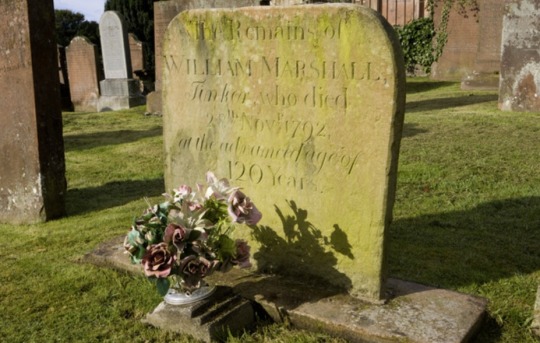
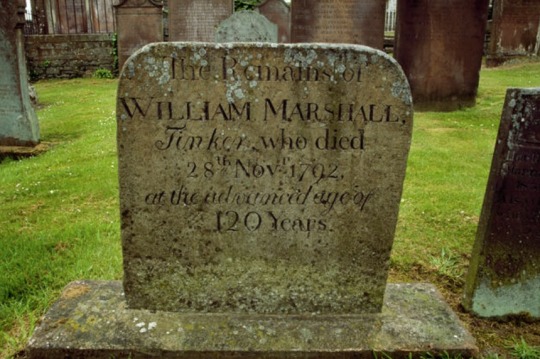
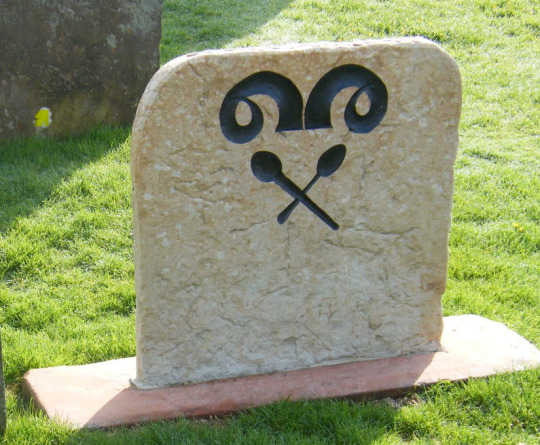
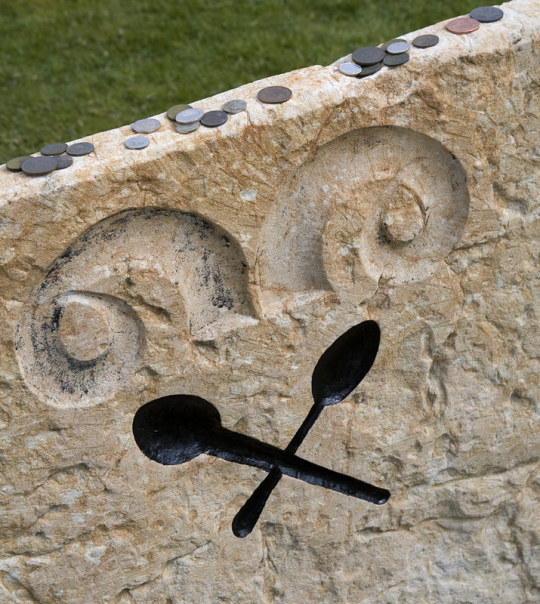
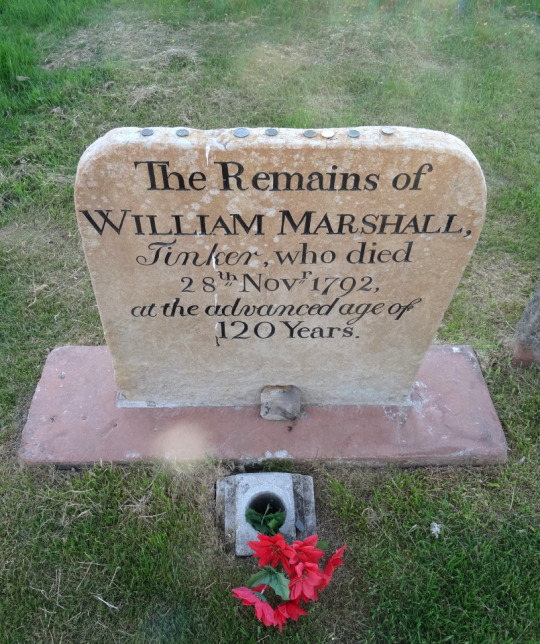
Billy Marshall, King of the Galloway Tinker Gypsies died on 28th November 1792, allegedly at the advanced age of 120 years.
William claimed to have been born in 1666 and certainly died in 1792. He was a gypsy king and father to countless children, both legitimate and illegitimate. He fathered several after his 100th birthday!
Billy was also a bare knuckle boxer, a smuggler, a soldier who deserted seven times and a sailor who deserted three times, the reason for his desertions was in order to attend Keltonhill Fair, two miles from Castle Douglas. The Horse Fair was the highlight of the gypsy year hereabouts, and Billy claimed not to have missed one in a hundred years.
Billy’s bare knuckled fights were long before there were any rules for boxing. Head butting, eye gouging, chin kicks, and wrestling were all permitted and each of three bouts saw various weapons being used including swords, knives and cudgels or quarterstaffs (long sticks).
Billy’s was also a skilled horner. There are several example of his work made of cow, sheep and goat horn at the Museum of Kirkcudbright - several spoons, a ladle and some beakers. one has a twisted handle and is inscribed ‘W x M 115 1788 - his initials, age and the date.
His followers, as well as working in traditional crafts, like tin and tool working, repairing pots and pans etc., were a bunch of scallywags. They travelled from Fair to Fair and made their living - sometimes honestly. In the main though, they were thieves, pick-pockets, highway robbers, cattle thieves, poachers and smugglers. If caught, it was inevitably transportation to the colonies.
He was married 17 times and was the father of 68 children, including four reputedly after his 100th birthday.
According to an entry in the New Annual Register for 1792: "This miracle of longevity retained his senses almost to the last hour of his life. He remembered distinctly to have seen King William's Fleet, when on their way to Ireland, riding at anchor in the Solway Firth close by the bay of Kirkcudbright, and the transports lying in the harbour.
"He was present at the siege of Derry (in 1689), where having lost his uncle, who commanded a King's frigate, he returned home, enlisted in the Dutch service, went to Holland and soon after deserted, and came back to his native country.
"Naturally of a wandering and unsettled turn of mind, he could never remain long in any particular place. Hence he took up the occupation of a tinker, headed a body of lawless bandits and frequently traversed the kingdom from one end to the other. But it is to be observed to his credit that all the thieving wandering geniuses who, during the weakness of the established government, led forth their various gangs to plunder and to alarm the country, he was far the most honourable in his profession."
Having served as a soldier, he was able to organise the country people who lost land when landowners built stone dykes and walls and went round knocking them down.
When Marshall died, he left behind a very mysterious grave stone displaying a pair of horns, which are believed to represent the zodiac sign of Aries , the ram, symbolizing strength and warrior-like energy, and the reason for it being on the stone might be a wink to the Tinker's Toast: "May war never be among us”.
Gypsy historians believe the crossed spoons represent a wish that his people never go hungry, but horn spoons were also extremely popular in Europe and Scandinavia as far back as medieval times, and horn spoon making has always been taken care of by gypsies since the 1600’s.
Billy Marshall’s much visited, restored grave is in Kirkcudbright Kirkyard above the town.
30 notes
·
View notes